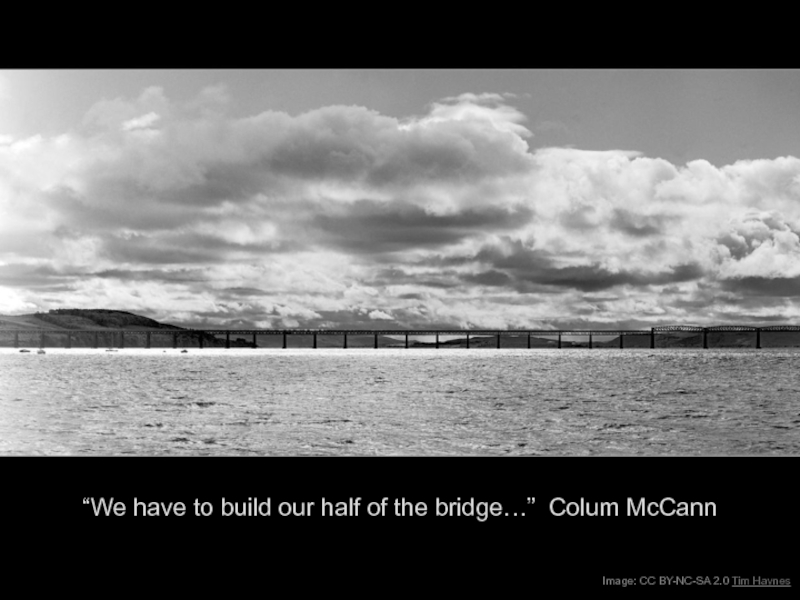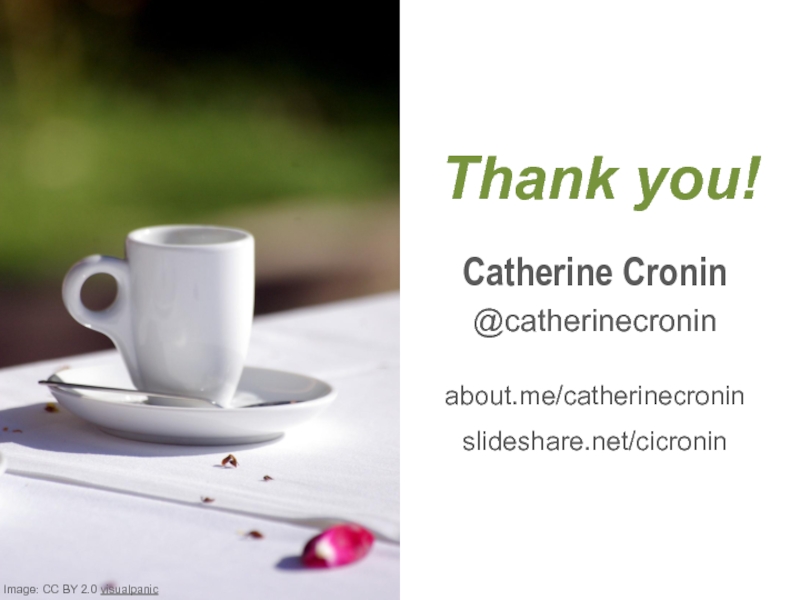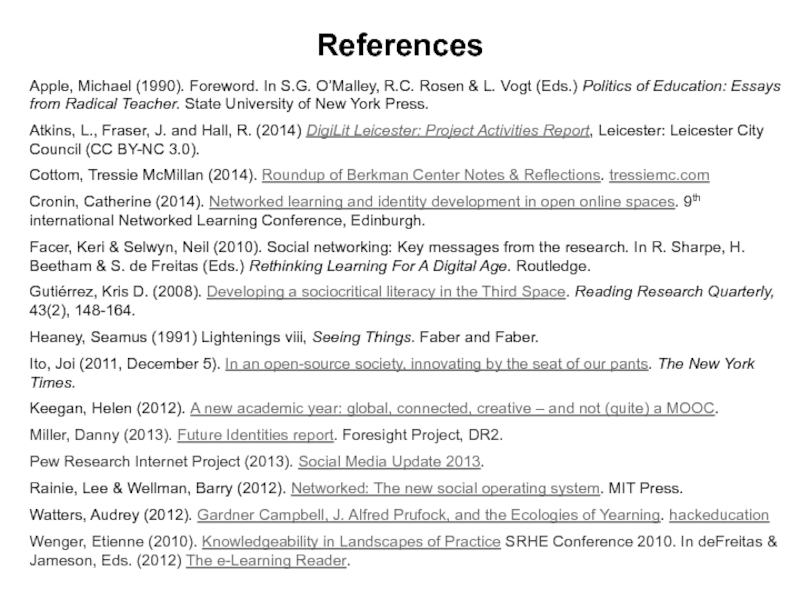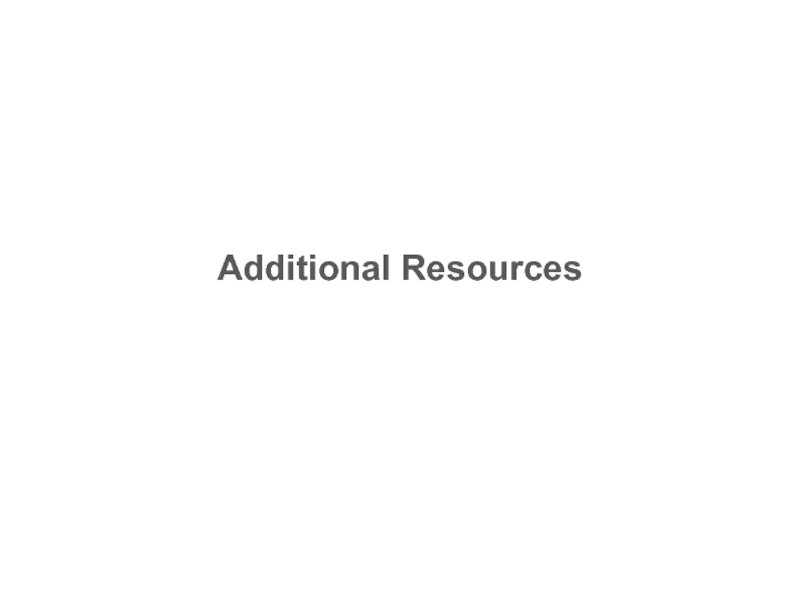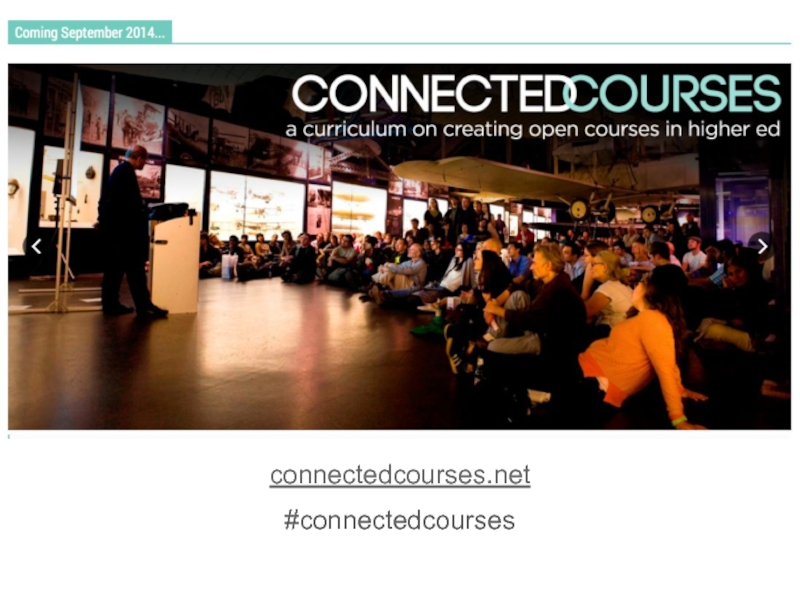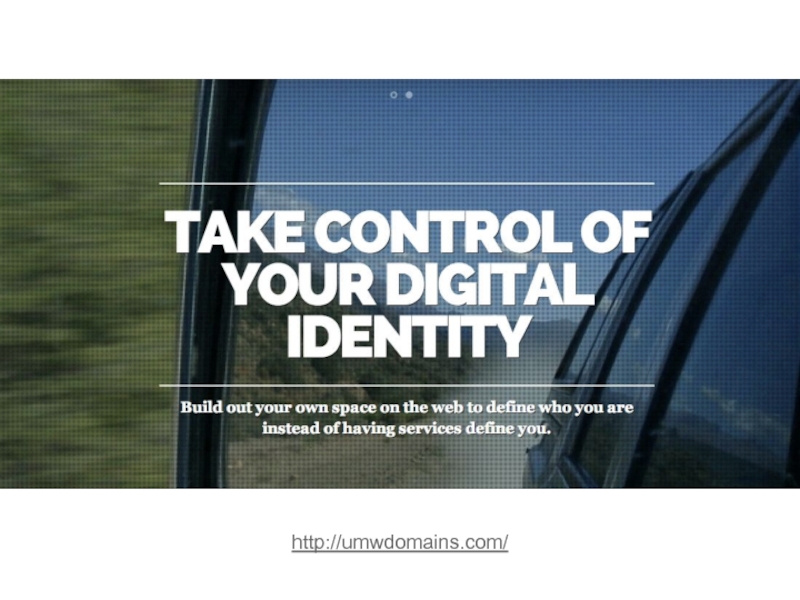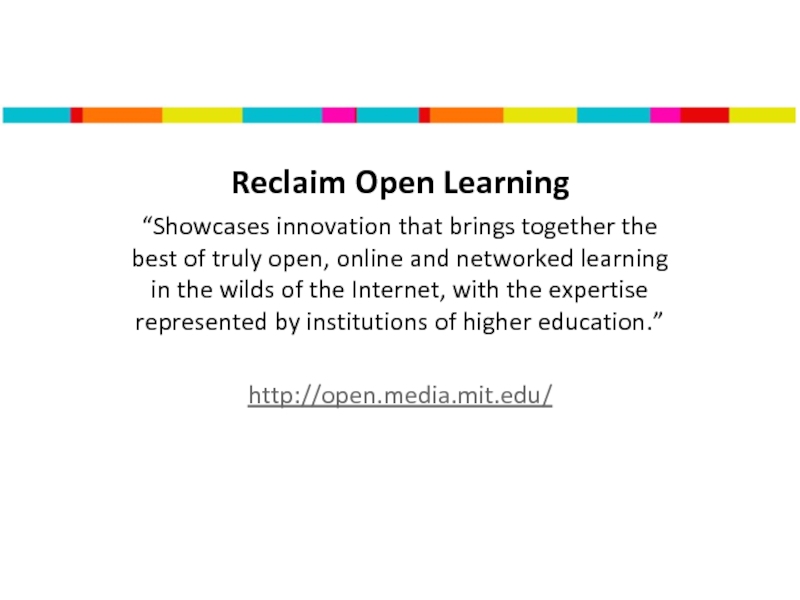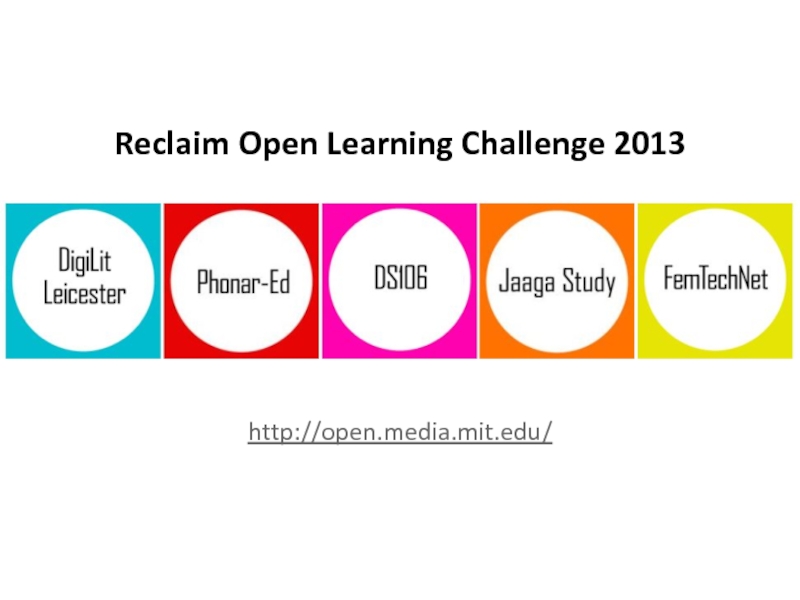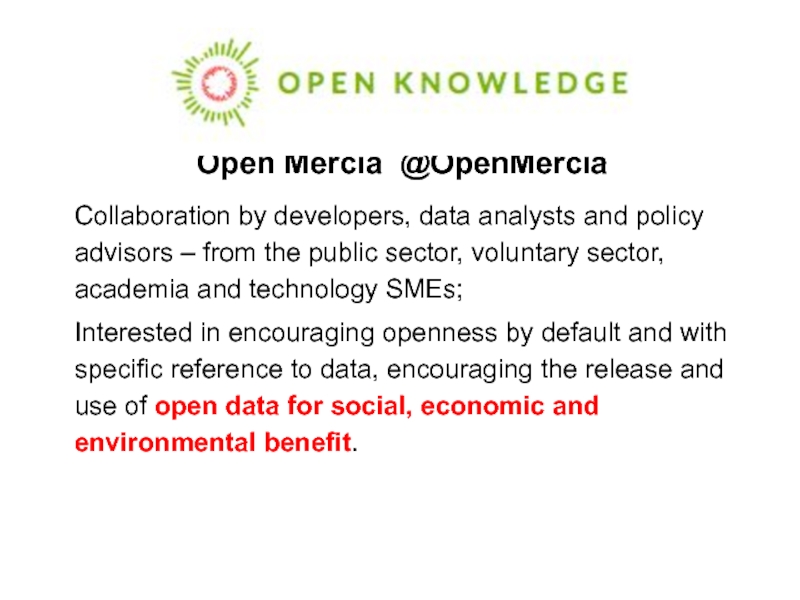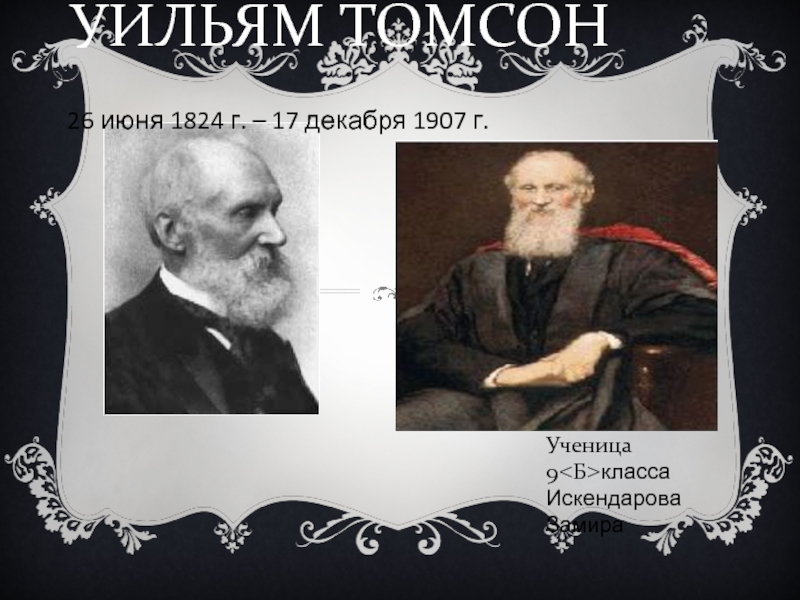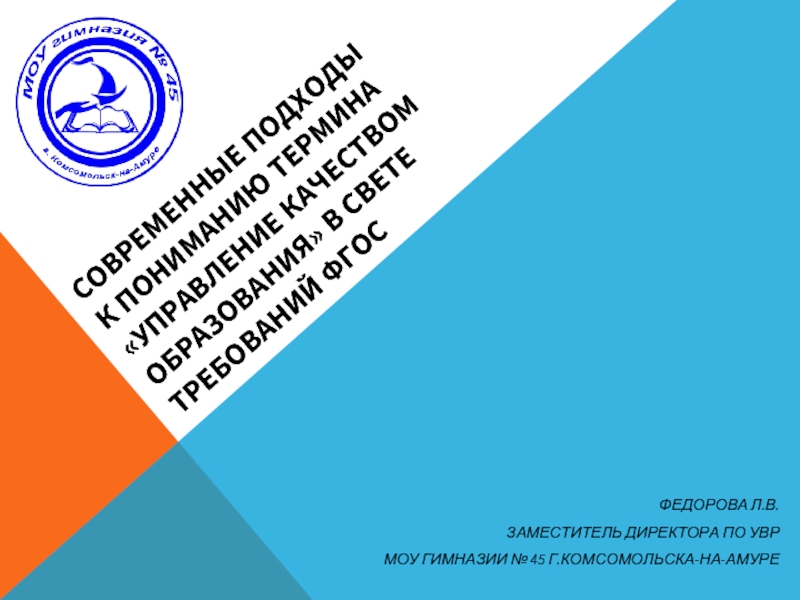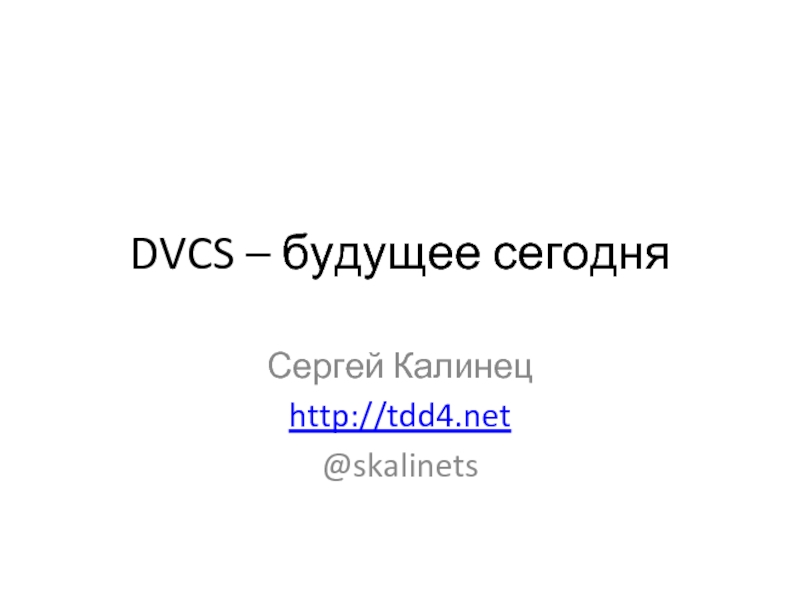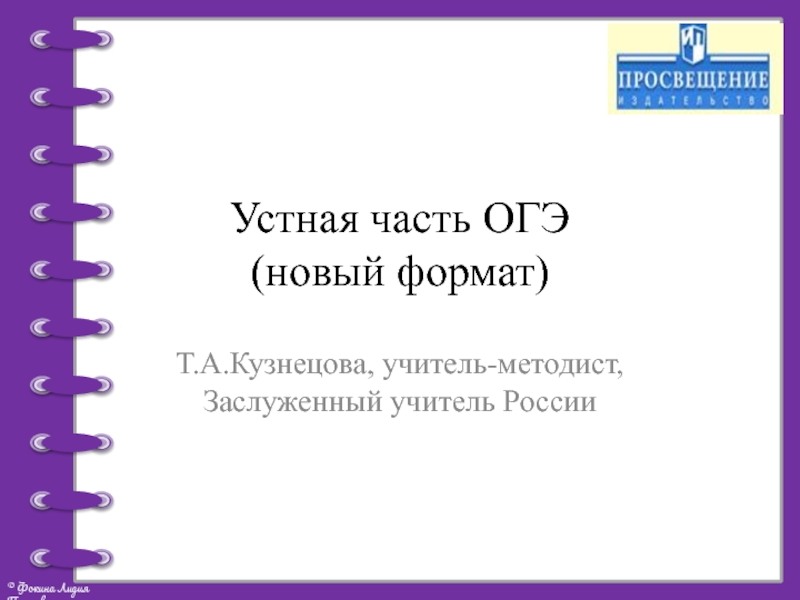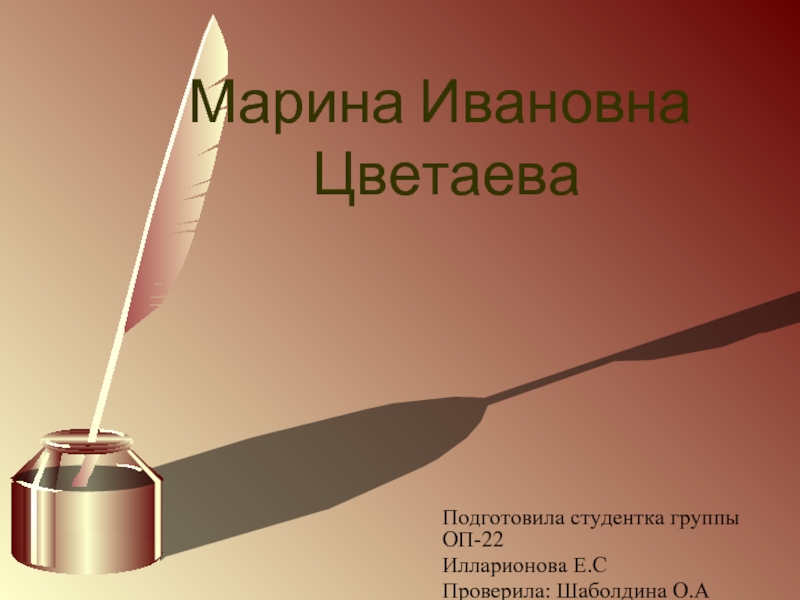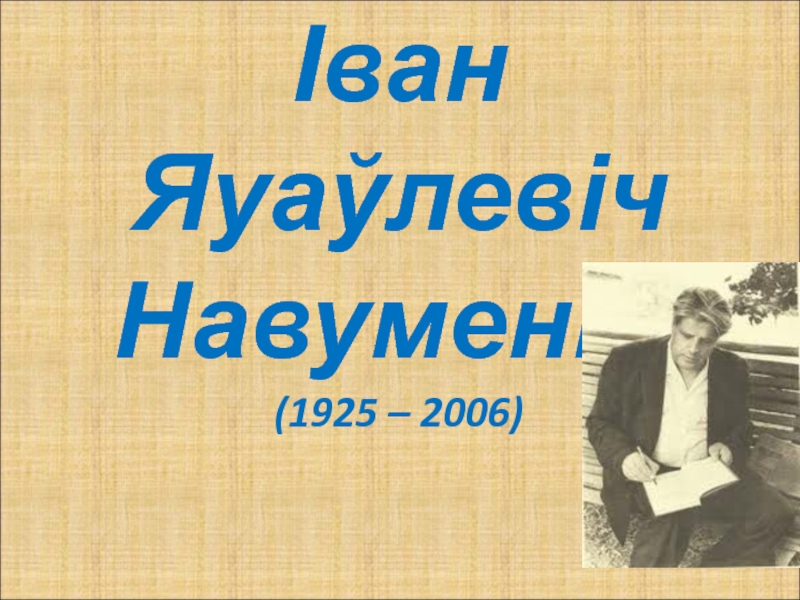Image: CC BY-NC 2.0 owaief89
- Главная
- Разное
- Дизайн
- Бизнес и предпринимательство
- Аналитика
- Образование
- Развлечения
- Красота и здоровье
- Финансы
- Государство
- Путешествия
- Спорт
- Недвижимость
- Армия
- Графика
- Культурология
- Еда и кулинария
- Лингвистика
- Английский язык
- Астрономия
- Алгебра
- Биология
- География
- Детские презентации
- Информатика
- История
- Литература
- Маркетинг
- Математика
- Медицина
- Менеджмент
- Музыка
- МХК
- Немецкий язык
- ОБЖ
- Обществознание
- Окружающий мир
- Педагогика
- Русский язык
- Технология
- Физика
- Философия
- Химия
- Шаблоны, картинки для презентаций
- Экология
- Экономика
- Юриспруденция
Navigating the Marvellous: Openness in Education Catherine Cronin ? @catherinecronin ? #altc ? 2nd Sept 2014 презентация
Содержание
- 1. Navigating the Marvellous: Openness in Education Catherine Cronin ? @catherinecronin ? #altc ? 2nd Sept 2014
- 2. divide spaces open identity
- 3. divide spaces open identity
- 4. Education is inherently an ethical and political act. Michael Apple
- 5. Public domain: Library of Congress, Prints &
- 6. Image: CC BY 2.0 dlofink
- 7. At its best openness is an
- 8. Image: CC BY-SA 2.0 cogdog Openness: hubris or humility?
- 9. “I don’t think education is about centralized
- 10. Networked Individualism
- 11. 2005 2013 Source: Pew Research Center’s Internet & American Life Project, 2005-2013
- 12. divide spaces open identity
- 13. There is a divide between formal and
- 14. …furtive thinking and behaviour around open-web resources
- 15. Seamus Heaney Lightenings viii - video by Eoghan Kidney vimeo.com/4831035
- 16. divide spaces open identity
- 17. Image: CC BY-NC-SA 2.0 Alec Couros Networked Teacher
- 18. Networked Educators Networked Students Physical Spaces Bounded Online Spaces Open Online Spaces
- 19. CC images: cdessums, infidelic, sholeh!
- 20. Networked Educators Networked Students Physical Spaces Bounded Online Spaces Open Online Spaces
- 21. Networked Educators Networked Students Physical Spaces Bounded Online Spaces Open Online Spaces
- 22. divide spaces open identity
- 24. Strange putting a face to the voice
- 25. @CT231 #ct231
- 29. We’re now looking at the ‘tag-team model’
- 30. #icollab TAGSExplorer thanks to @mhawksey
- 31. Individuals, students and educators, can be
- 32. https://storify.com/catherinecronin/msokeeffesclass-visit-to-nuig HE – primary school collaboration @msokeeffesclass
- 33. Youth Media Team @YMTfm
- 35. Coder Dojo @coderdojo
- 36. storify.com/catherinecronin/icollab-student-staff-twitter-chat
- 38. #studentvoice
- 39. I learned a lot more about writing
- 40. Before studying it, I used Facebook and
- 41. Open practices give us and our students
- 42. divide spaces open identity
- 43. Image: CC BY-NC-ND 2.0 Frederic Poirot digital identity
- 44. Image: CC BY 2.0 davitydave
- 45. DigiLit Leicester Working to improve learner outcomes
- 46. As studies become more contextualised it seems
- 47. A learning space not THE space
- 48. We proposed the idea of a Third
- 49. People live their lives and learn across
- 50. Networked Educators Networked Students Physical Spaces Bounded Online Spaces Open Online Spaces
- 51. If institutions of learning are going to
- 52. Manifesto for teaching online MSc in Digital
- 53. There’s a risk that online education systems
- 54. Learners need to practice
- 55. divide spaces open identity
- 56. navigating the marvellous…
- 57. #YesAllWomen
- 58. http://www.theguardian.com/education/shortcuts/2014/mar/12/oxford-university-students-of-colour-being-othered
- 59. Gardner Campbell – Ecologies of Yearning
- 60. Image: CC BY-NC-SA 2.0 Tim Haynes
- 61. Thank you! Catherine Cronin @catherinecronin about.me/catherinecronin slideshare.net/cicronin Image: CC BY 2.0 visualpanic
- 62. References Apple, Michael (1990). Foreword. In S.G.
- 63. Additional Resources
- 64. connectedcourses.net #connectedcourses
- 65. http://umwdomains.com/
- 66. http://umwdomains.com/
- 67. Reclaim Open Learning “Showcases innovation that
- 68. http://open.media.mit.edu/ Reclaim Open Learning Challenge 2013
- 69. Open Mercia @OpenMercia Collaboration by developers,
Слайд 1
Navigating the Marvellous:
Openness in Education
Catherine Cronin • @catherinecronin • #altc •
Слайд 5Public domain: Library of Congress, Prints & Photographs Division,
U.S. News
CC BY Burns Library, Boston College (Flickr)
Слайд 7
At its best openness is an ethos
not a license. It's
teaching and learning that
builds a community of learners
online and off.
Jim Groom
@jimgroom
“
Слайд 9“I don’t think education is about centralized instruction anymore; rather, it
– Joi Ito @joi
Slide: CC-BY-SA catherinecronin Image: CC BY-NC-SA 2.0 yobink
Слайд 13There is a divide between formal and informal learning.
Students navigate the
Слайд 14…furtive thinking and behaviour around open-web resources such as Wikipedia masks
David White, Lynn S. Connaway,
Donna Lanclos, Erin M. Hood & Carrie Vass
Evaluating digital services: a Visitors and Residents approach, JISC InfoNet
“
Слайд 24Strange putting a face to the voice of my first year
Khan Academy is possibly one of the most useful sources for students studying maths. The idea is simple, If you don't understand the first time you watch it... watch it again.
Khan Academy...
#studentvoice
“
Слайд 29We’re now looking at the ‘tag-team model’ of education: the projects
Increasingly, students are connecting across levels and cohorts through Twitter and now we have ex-students getting together with current students, undergrads coming to postgrad classes (and vice versa) as they’ve connected online and have a genuine interest in getting involved in other groups/further curricula outside of their taught modules.”
#icollab
Helen Keegan (2012)
@heloukee
“
Слайд 31Individuals, students and educators,
can be nodes in a network.
Groups
also can be nodes, e.g. via #hashtags.
Слайд 32https://storify.com/catherinecronin/msokeeffesclass-visit-to-nuig
HE – primary school collaboration
@msokeeffesclass
Слайд 39I learned a lot more about writing to the public. Before
By posting publicly it opened up our world to other academics or people who are just interested in the topic... I don’t think anyone would have thought that the author of one of the works we were researching would get involved.
#studentvoice
Openness...
“
“
Слайд 40Before studying it, I used Facebook and Twitter mainly just for
They are places to discover new information and boost your knowledge. That both education and socialising can be rolled into one.
#studentvoice
Social networks...
“
“
Слайд 41Open practices give us and our students opportunities to cross boundaries
Слайд 45DigiLit Leicester
Working to improve learner outcomes and raise standards in secondary
through design & implementation of a digital literacy framework for secondary school staff.
Josie Fraser, Richard Hall & Lucy Atkins
http://www.digilitleic.com
Слайд 46As studies become more contextualised it seems that the real lesson
Danny Miller (2013) @dannyanth
Photo by George Miller
(used with permission)
“
Слайд 48We proposed the idea of a Third Space where teacher and
University of Colorado, Boulder
Kris Gutiérrez (2008)
“
Слайд 49People live their lives and learn across multiple settings, and this
I take an approach that urges me to consider the significant overlap across these boundaries as people, tools, and practices travel through different and even contradictory contexts and activities .
Gutiérrez (2008)
“
Слайд 51If institutions of learning are going to help
learners with the
[they] will have to shift their focus from
imparting curriculum to supporting the
negotiation of productive identities
through landscapes of practices.
CC BY-NC-SA 2.0 choconancy1
Etienne Wenger (2010)
“
Слайд 52Manifesto for teaching online
MSc in Digital Education at the University of
By redefining connection, we find we can make eye contact online.
Place is differently, not less, important online.
Community and contact drive good online learning.
…
onlineteachingmanifesto.wordpress.com
Слайд 53There’s a risk that online education systems get tooled to “the
a self-motivated, able learner that is simultan-eously embedded in technocratic futures and disembedded from place, culture, history, and markets.
Tressie McMillan Cottom (2014)
“
tressiemc.com/2014/07/30/round-up-of-berkman-center-notes-and-reflections
Слайд 54
Learners need to practice and experiment with different ways of enacting
These opportunities can only be supported by academic staff who are themselves engaged in digital practices and questioning their own relationship with knowledge.
- Keri Facer & Neil Selwyn (2010)
Слайд 58http://www.theguardian.com/education/shortcuts/2014/mar/12/oxford-university-students-of-colour-being-othered
Слайд 59Gardner Campbell – Ecologies of Yearning
youtube.com/watch?v=kIzA4ItynYw
Openness [is] process, not
Audrey Watters (2012)
“
Слайд 61Thank you!
Catherine Cronin
@catherinecronin
about.me/catherinecronin
slideshare.net/cicronin
Image: CC BY 2.0 visualpanic
Слайд 62References
Apple, Michael (1990). Foreword. In S.G. O’Malley, R.C. Rosen & L.
Atkins, L., Fraser, J. and Hall, R. (2014) DigiLit Leicester: Project Activities Report, Leicester: Leicester City Council (CC BY-NC 3.0).
Cottom, Tressie McMillan (2014). Roundup of Berkman Center Notes & Reflections. tressiemc.com
Cronin, Catherine (2014). Networked learning and identity development in open online spaces. 9th international Networked Learning Conference, Edinburgh.
Facer, Keri & Selwyn, Neil (2010). Social networking: Key messages from the research. In R. Sharpe, H. Beetham & S. de Freitas (Eds.) Rethinking Learning For A Digital Age. Routledge.
Gutiérrez, Kris D. (2008). Developing a sociocritical literacy in the Third Space. Reading Research Quarterly, 43(2), 148-164.
Heaney, Seamus (1991) Lightenings viii, Seeing Things. Faber and Faber.
Ito, Joi (2011, December 5). In an open-source society, innovating by the seat of our pants. The New York Times.
Keegan, Helen (2012). A new academic year: global, connected, creative – and not (quite) a MOOC.
Miller, Danny (2013). Future Identities report. Foresight Project, DR2.
Pew Research Internet Project (2013). Social Media Update 2013.
Rainie, Lee & Wellman, Barry (2012). Networked: The new social operating system. MIT Press.
Watters, Audrey (2012). Gardner Campbell, J. Alfred Prufock, and the Ecologies of Yearning. hackeducation
Wenger, Etienne (2010). Knowledgeability in Landscapes of Practice SRHE Conference 2010. In deFreitas & Jameson, Eds. (2012) The e-Learning Reader.
Слайд 67Reclaim Open Learning
“Showcases innovation that brings together the
best of
http://open.media.mit.edu/
Слайд 69Open Mercia @OpenMercia
Collaboration by developers, data analysts and policy advisors
Interested in encouraging openness by default and with specific reference to data, encouraging the release and use of open data for social, economic and environmental benefit.
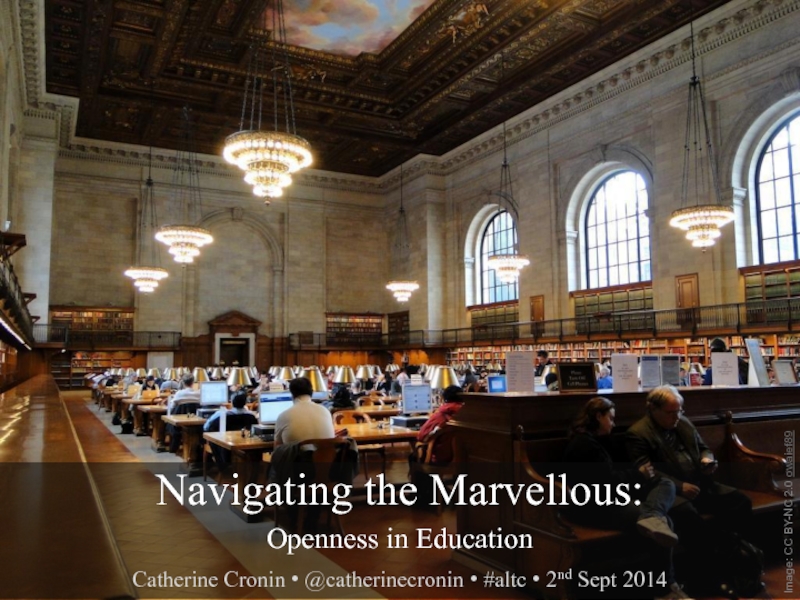
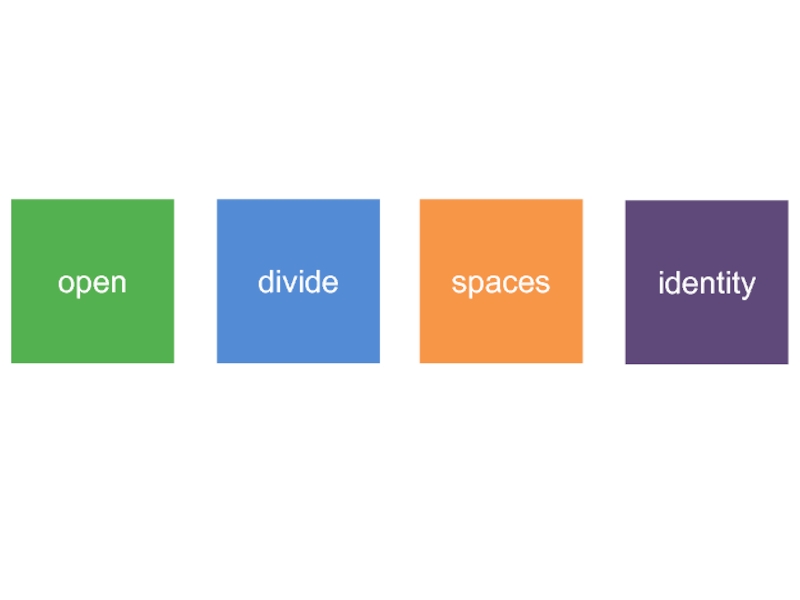
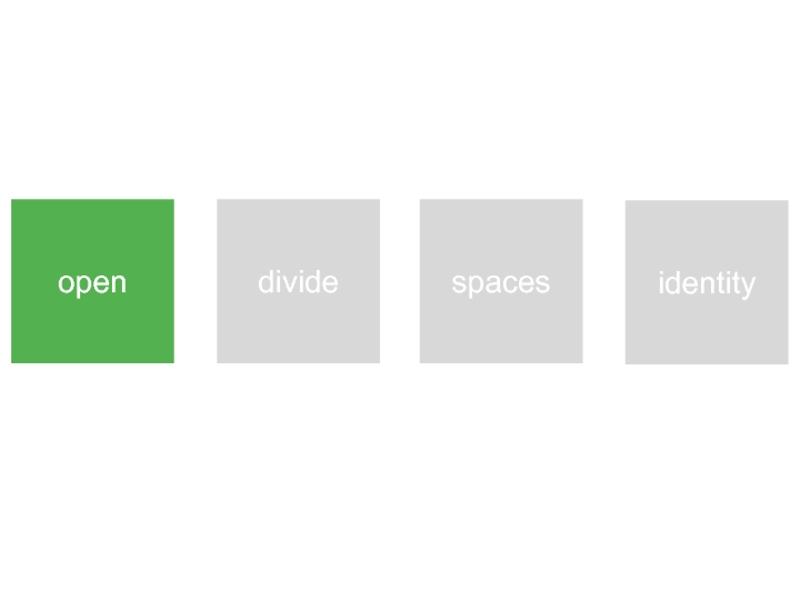
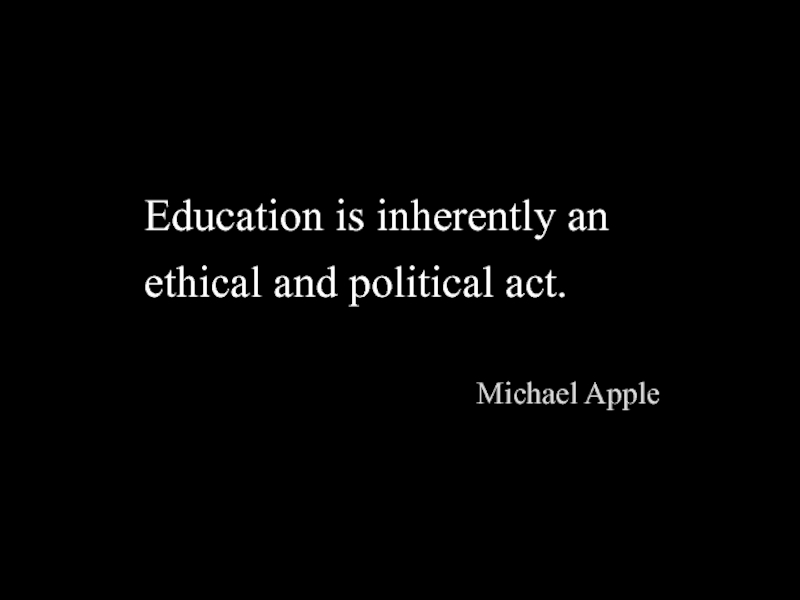


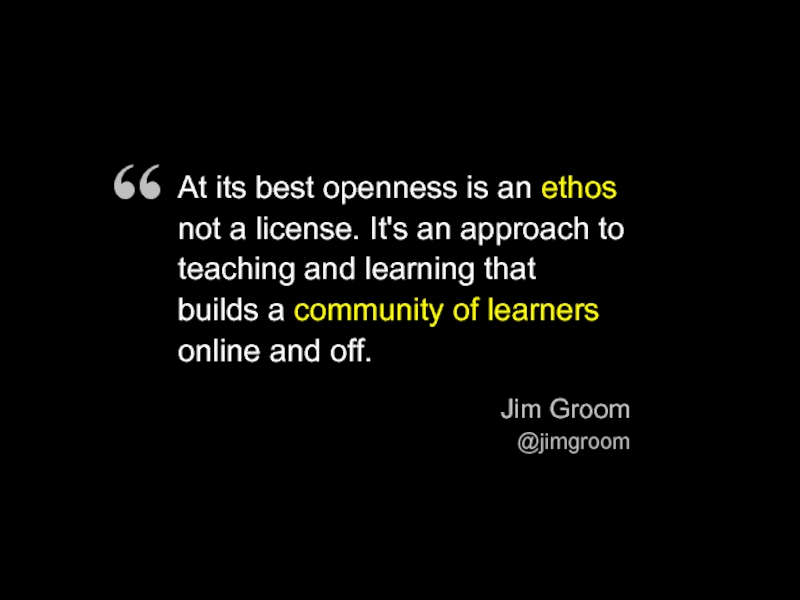
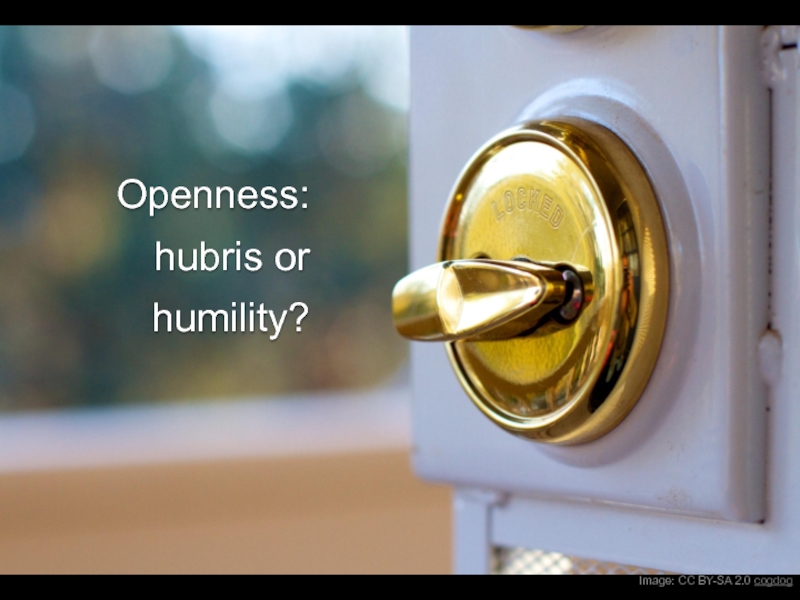
![“I don’t think education is about centralized instruction anymore; rather, it is the process [of]](/img/tmb/1/43436/571a9f5b8fff390da9a92c2042a76623-800x.jpg)
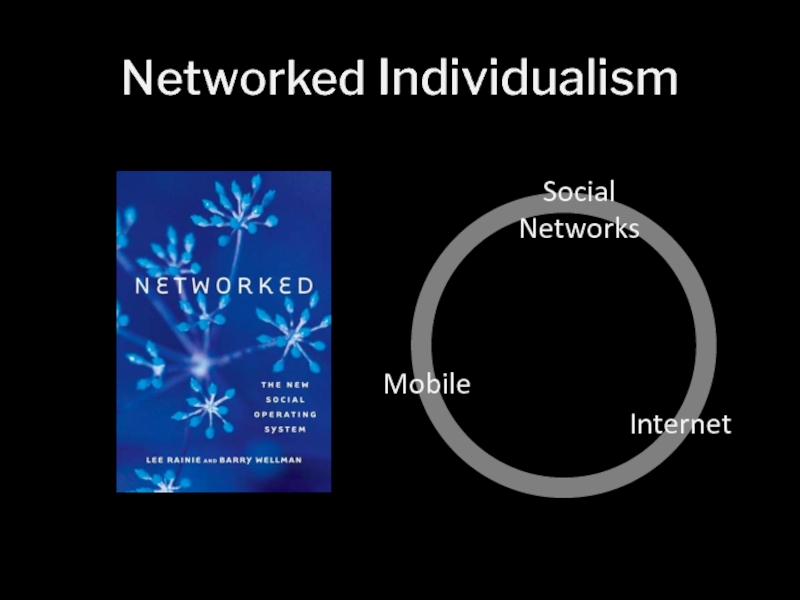
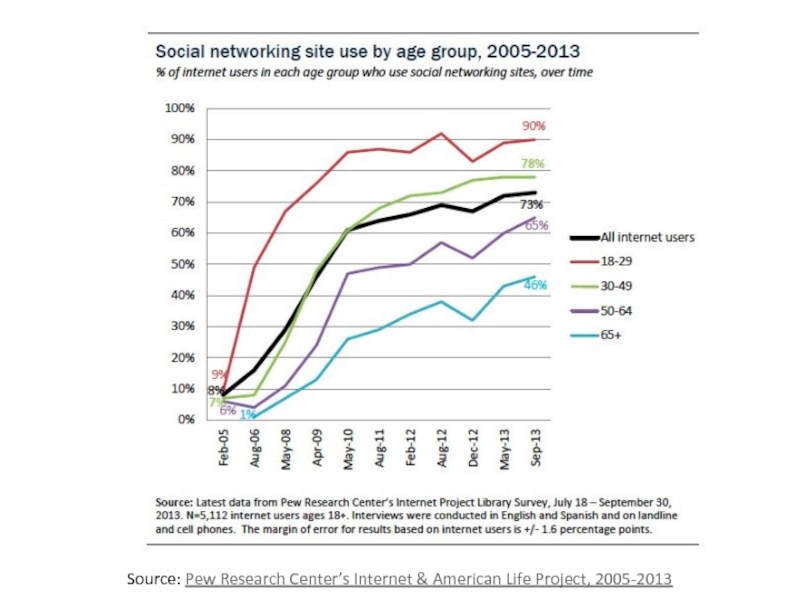
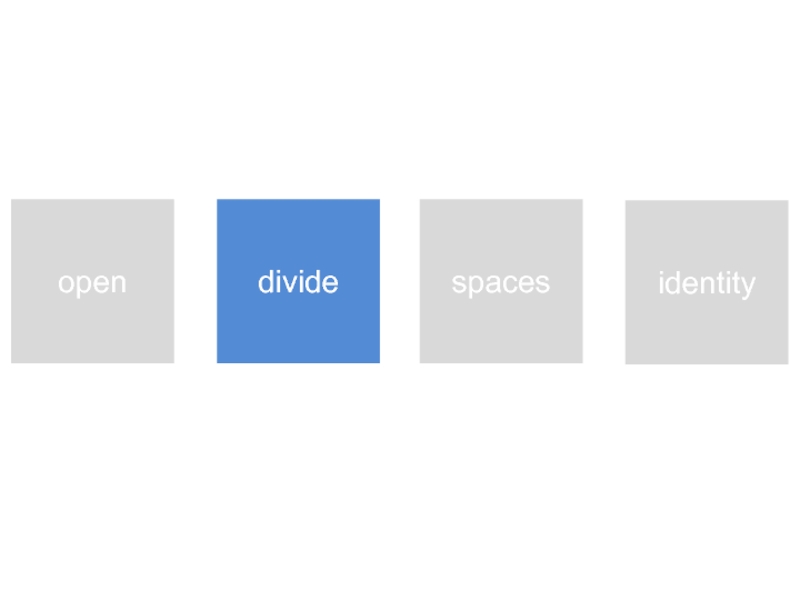
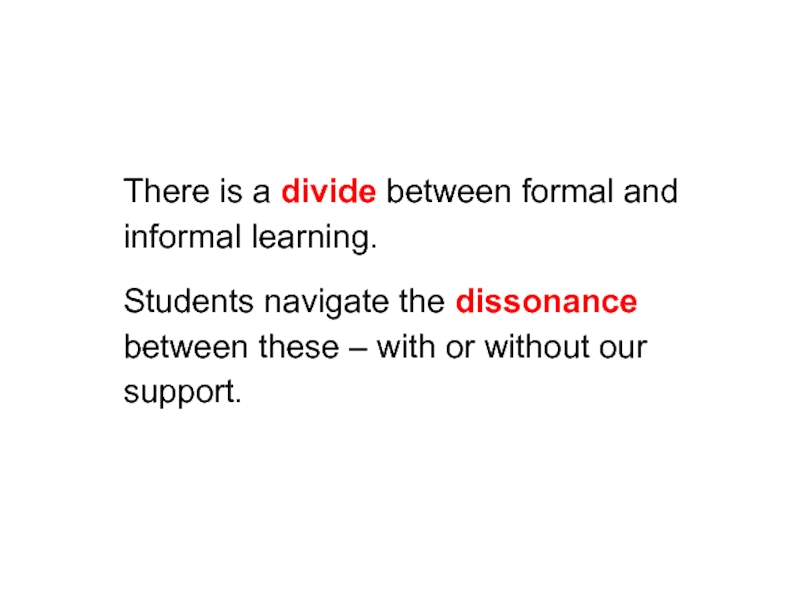
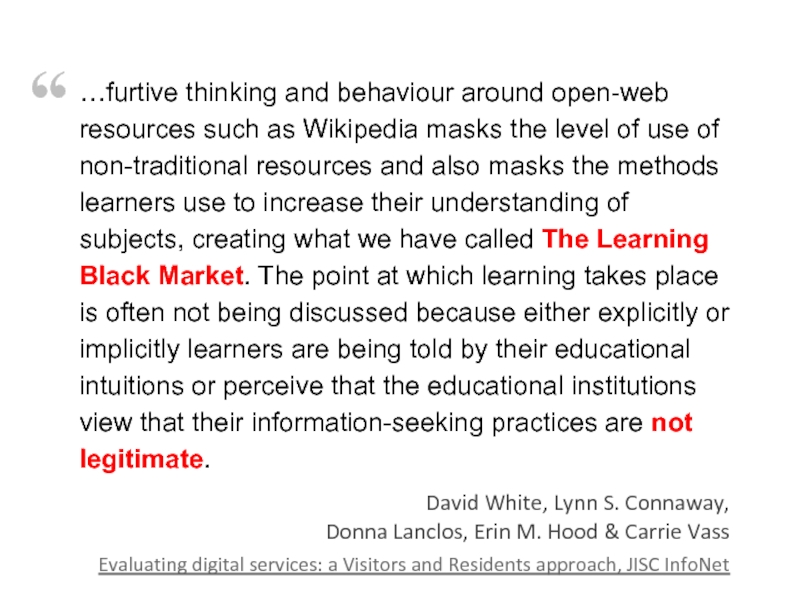
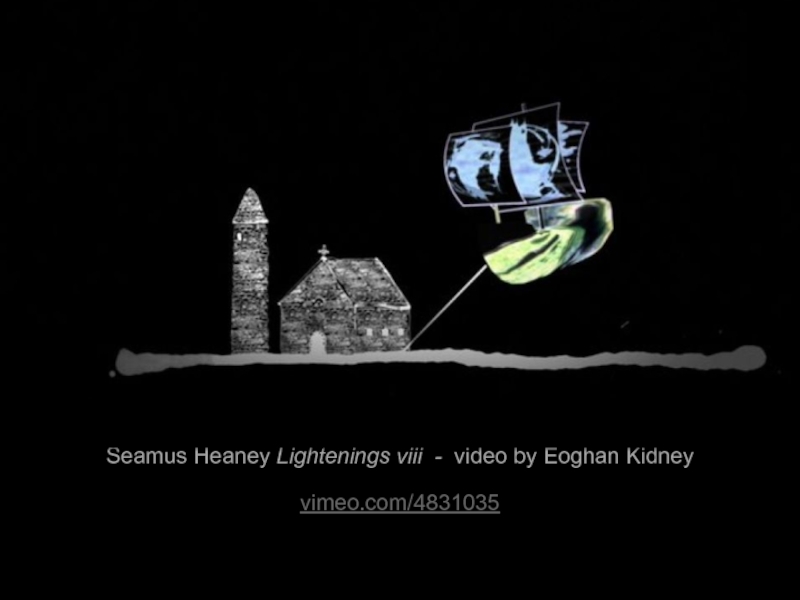
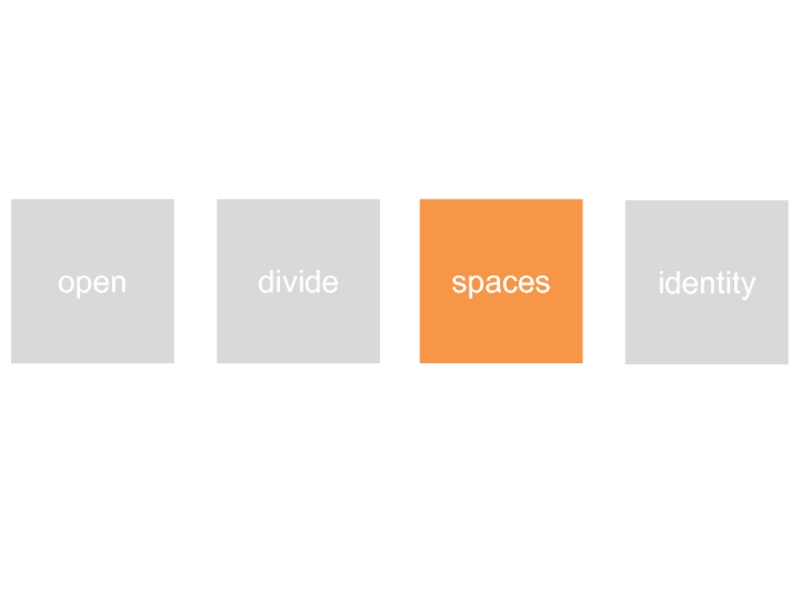
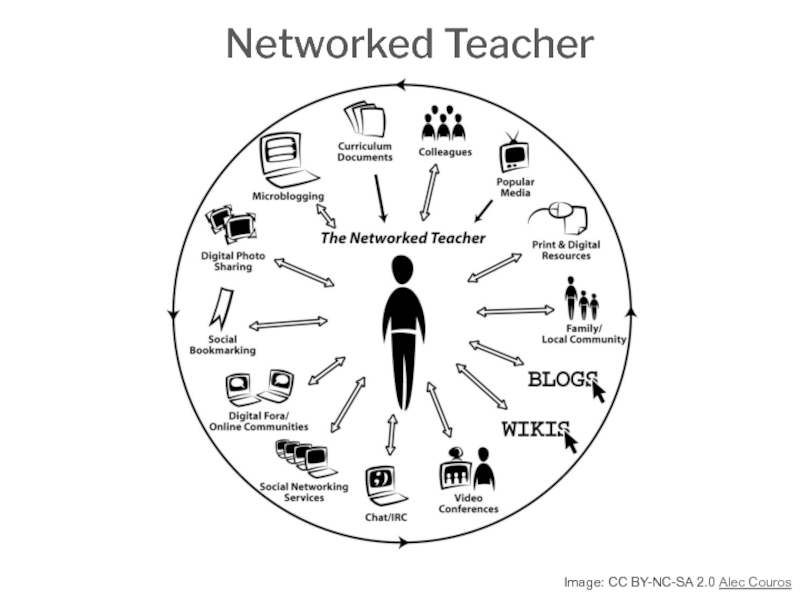
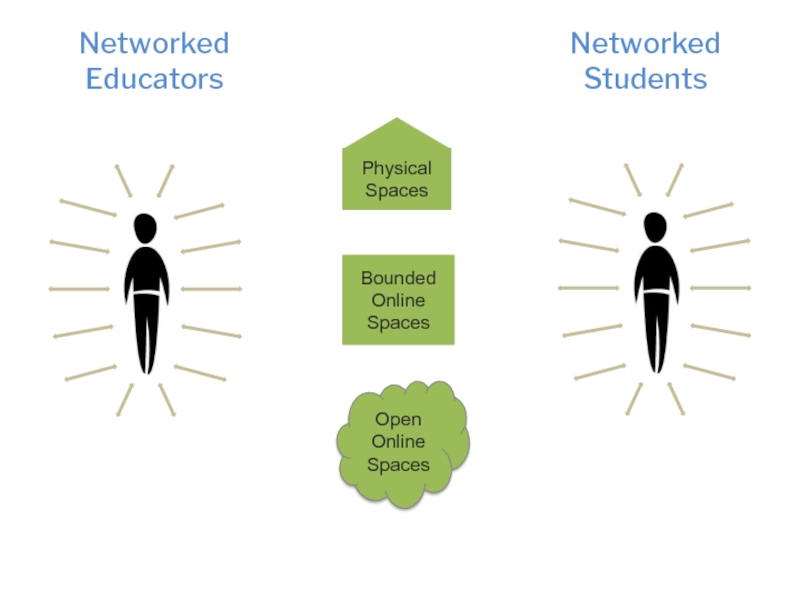
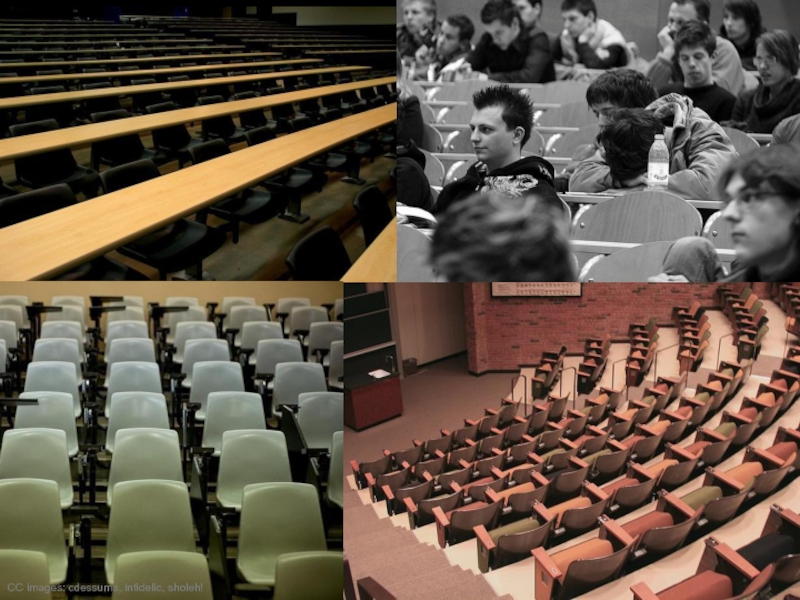
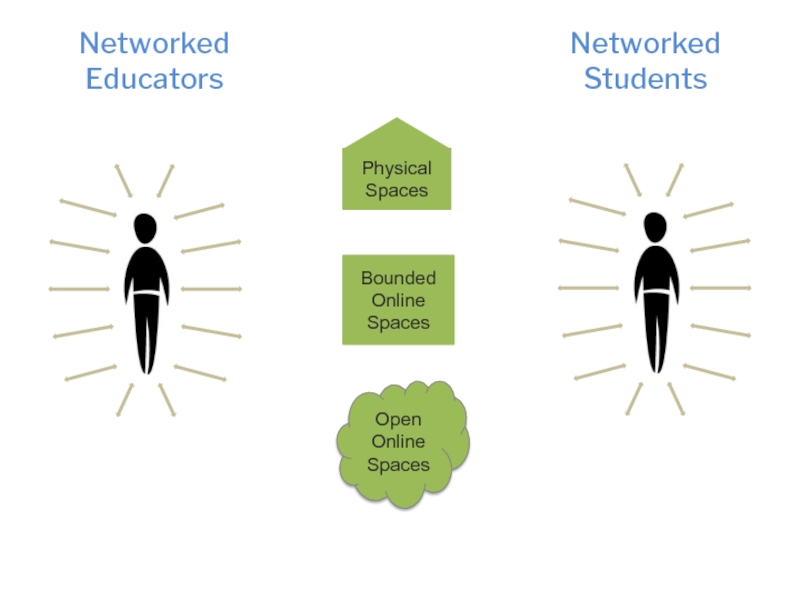
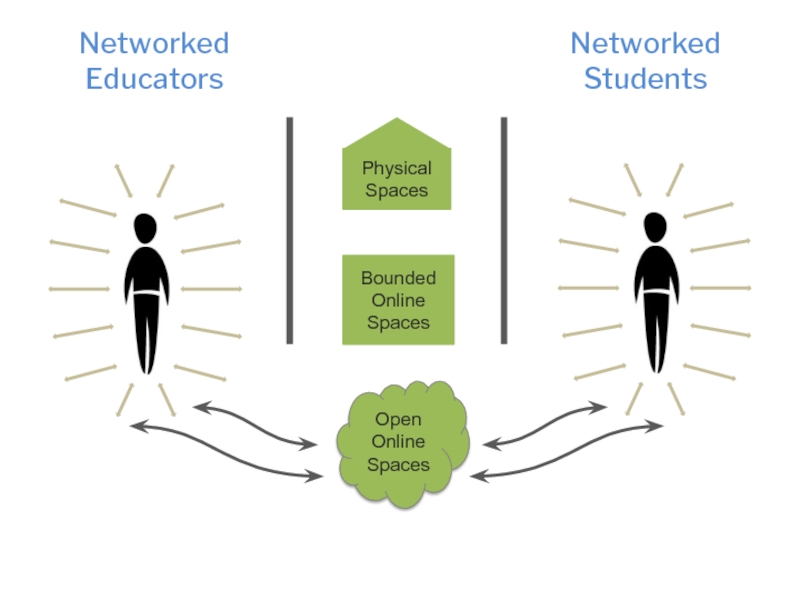
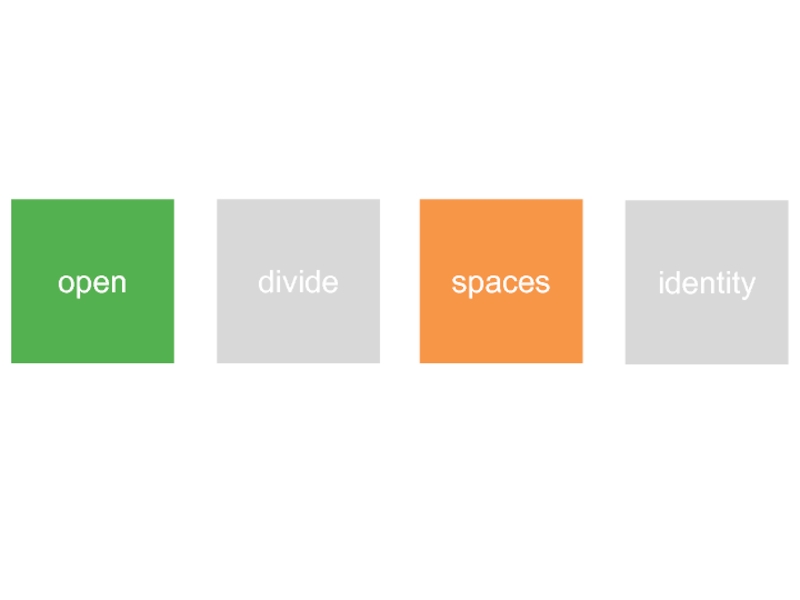
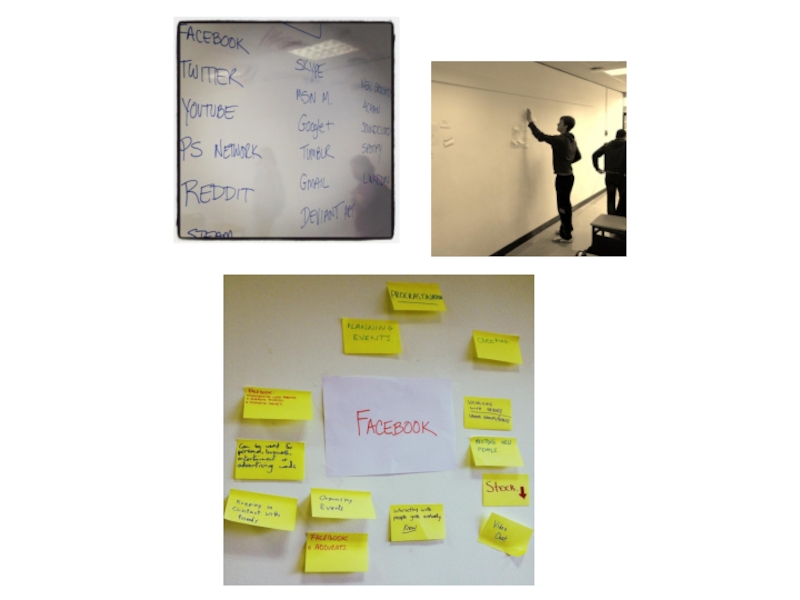
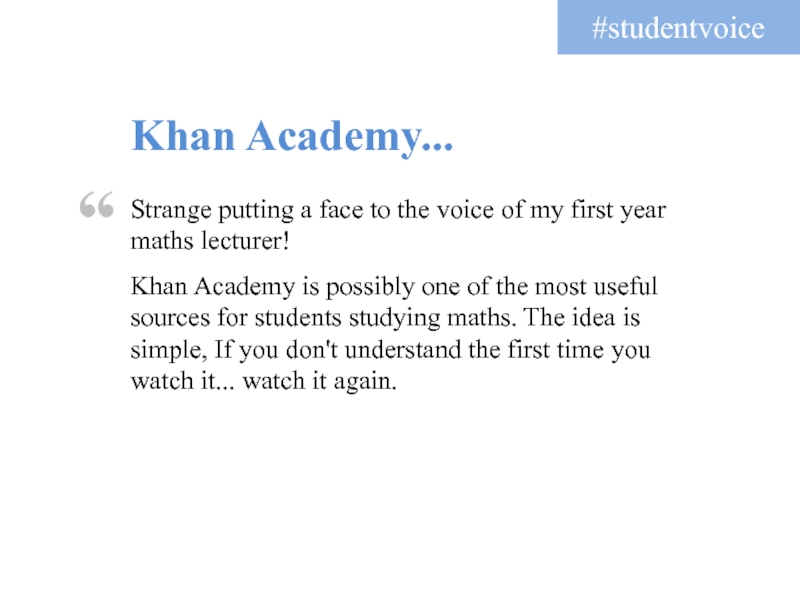
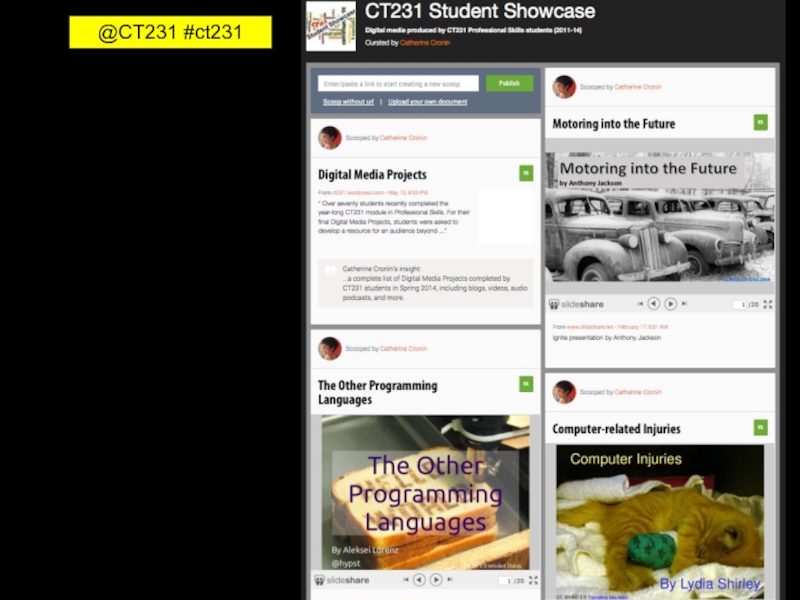
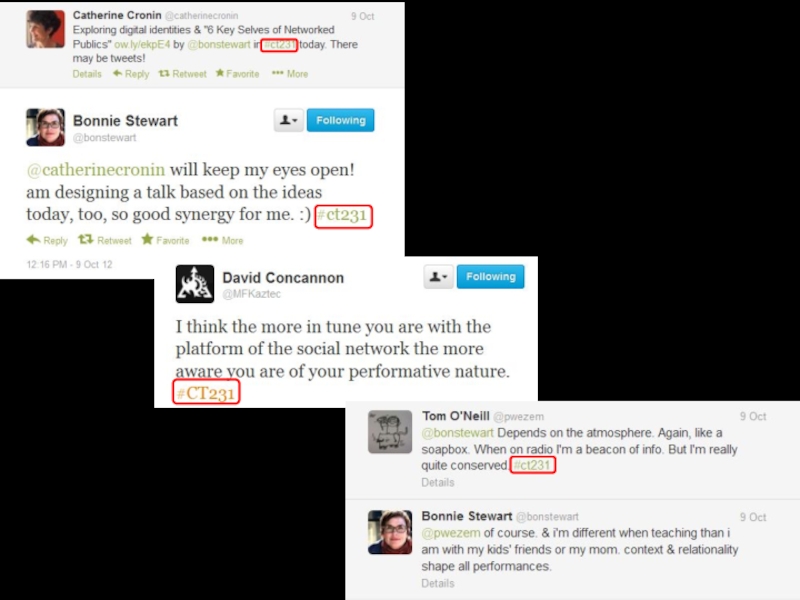
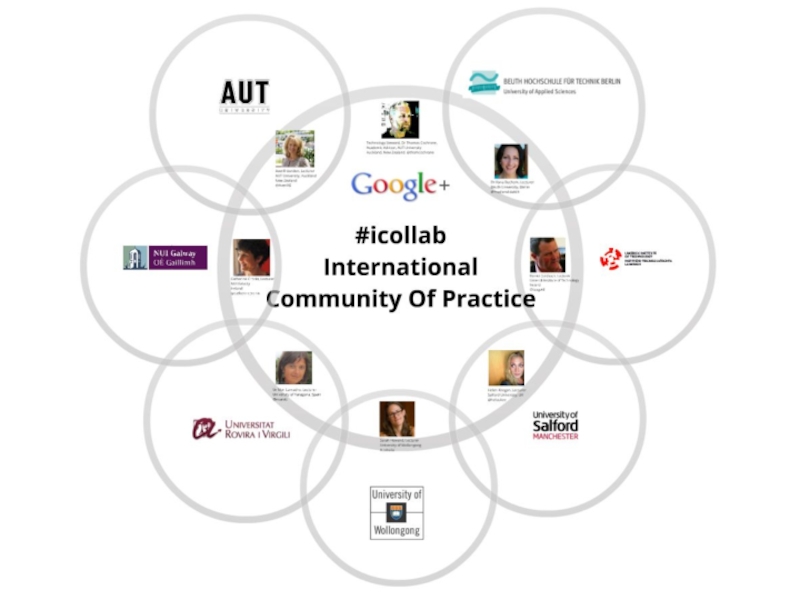
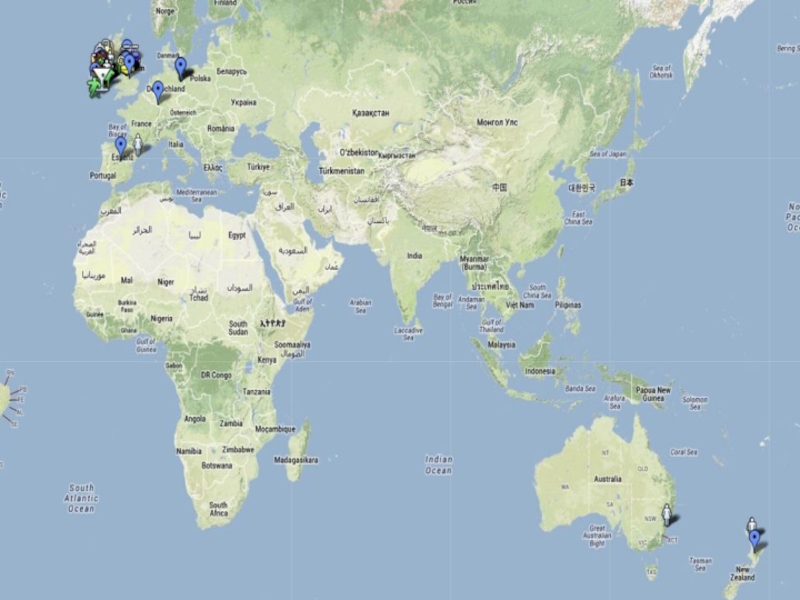

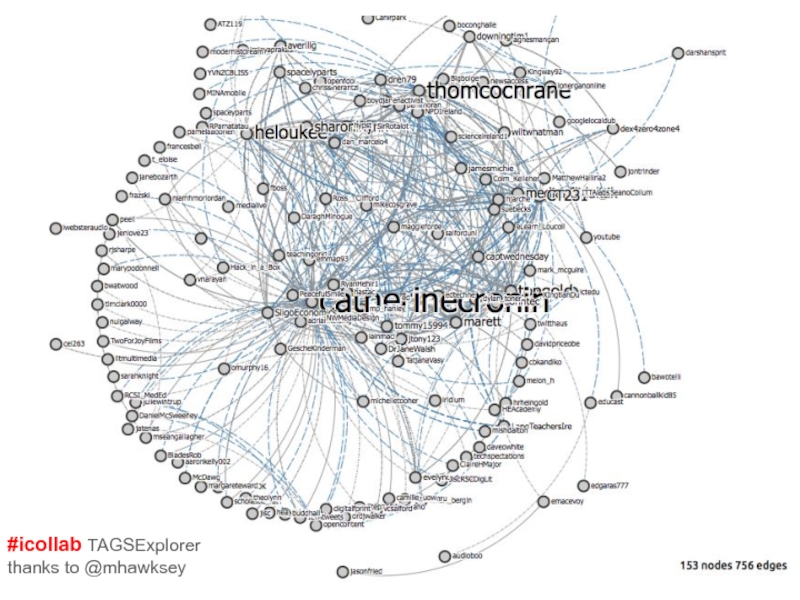
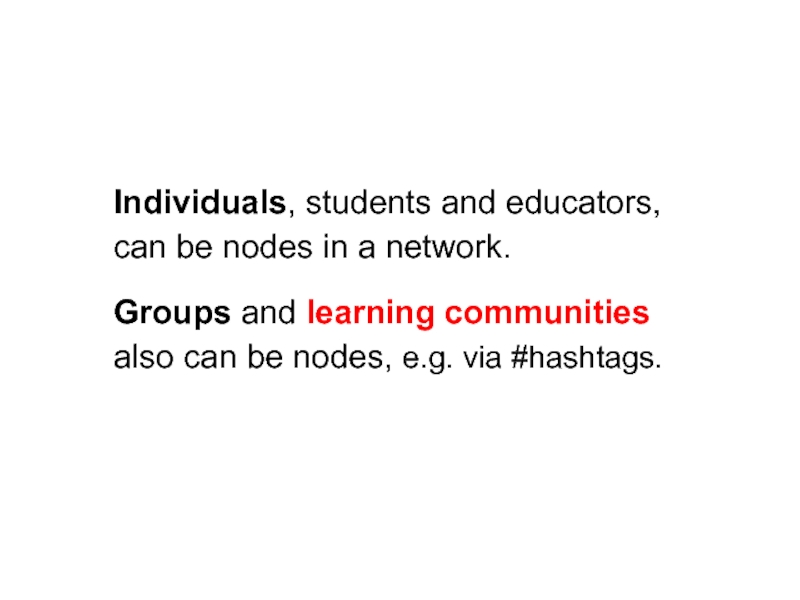
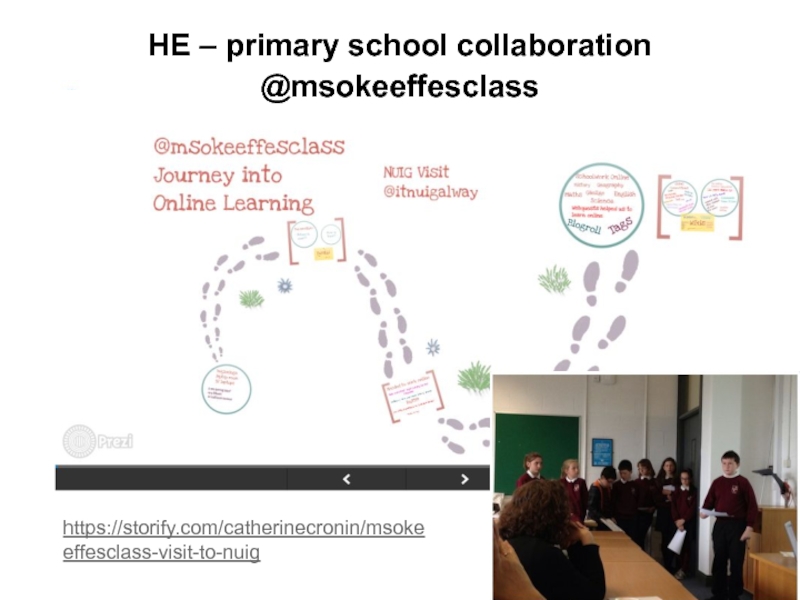
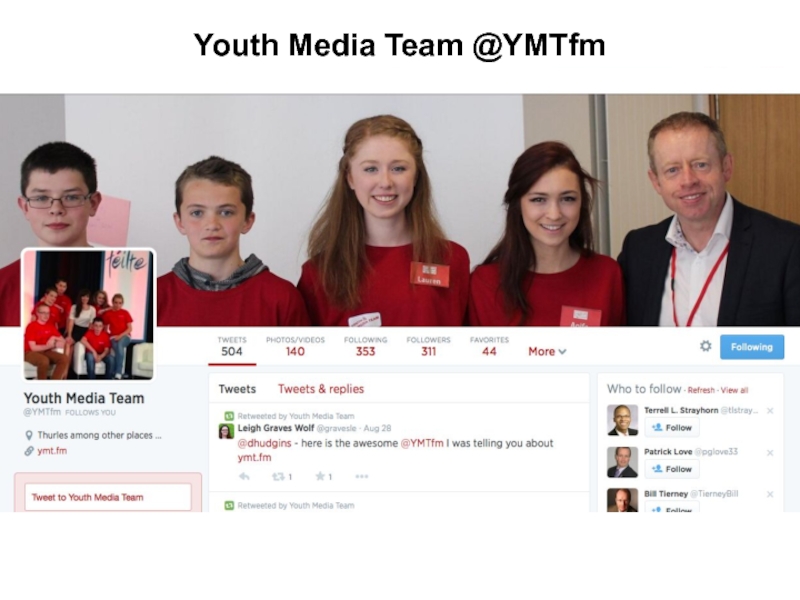
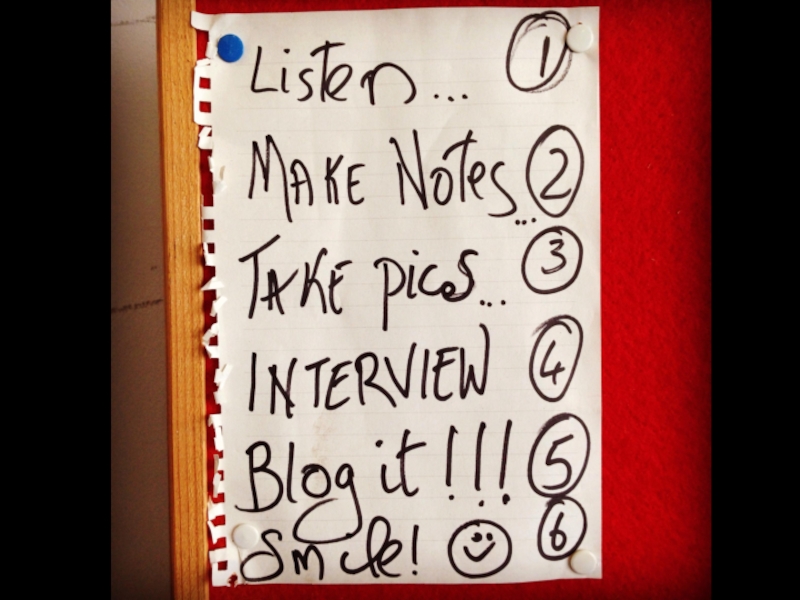
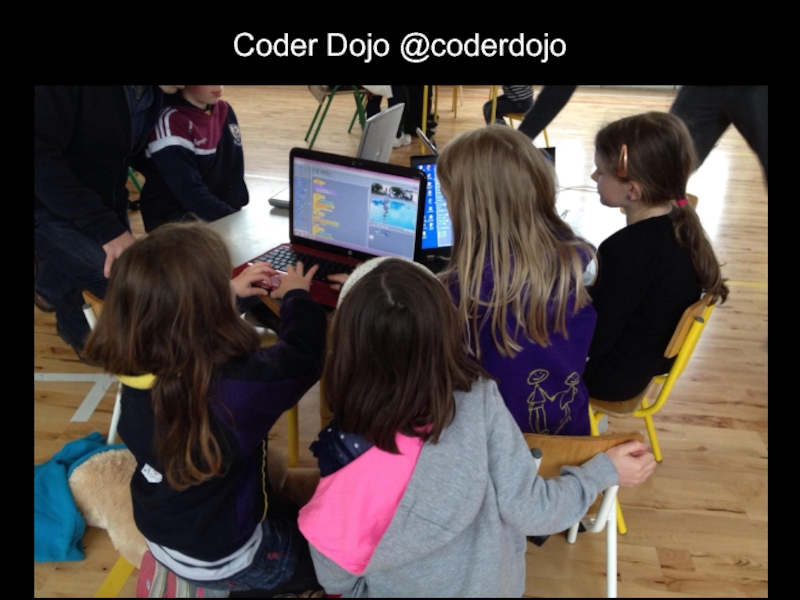
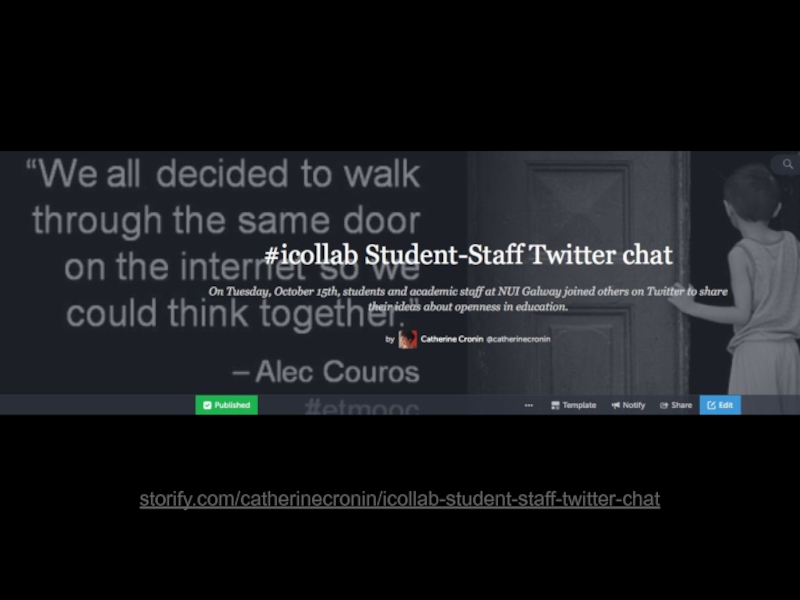
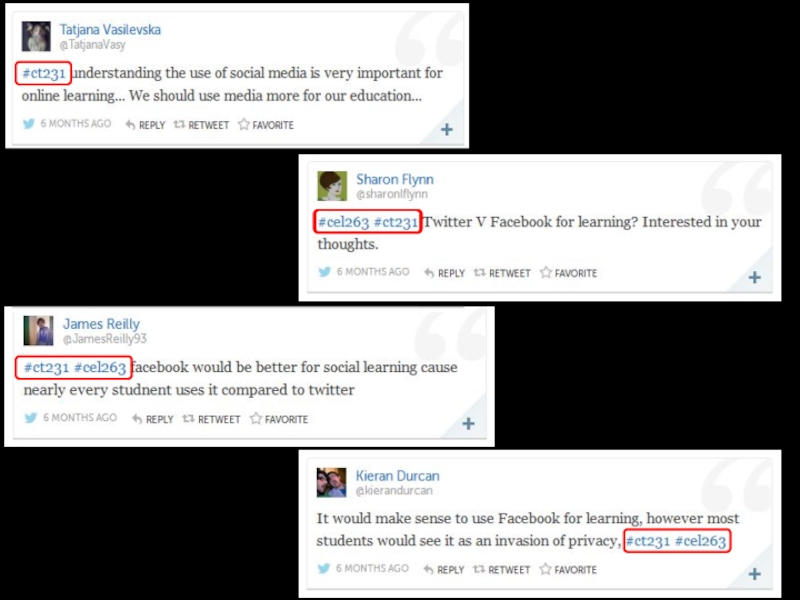

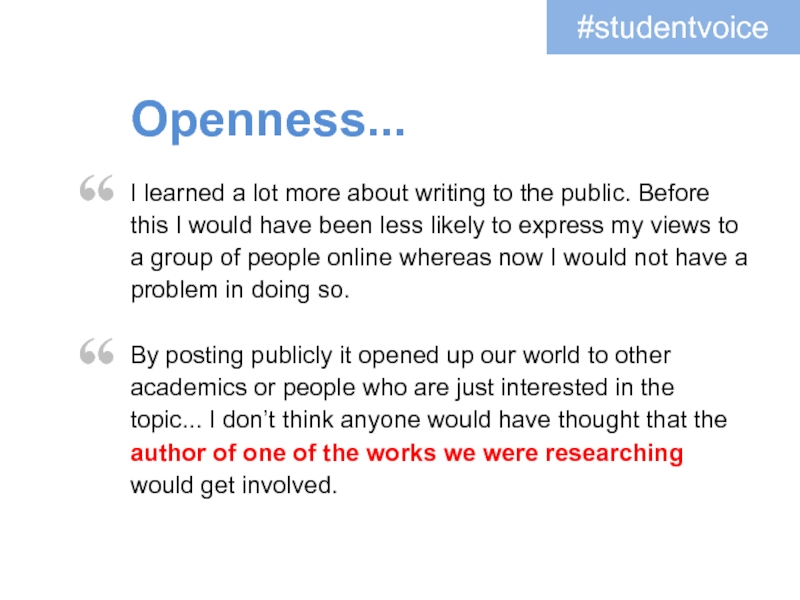
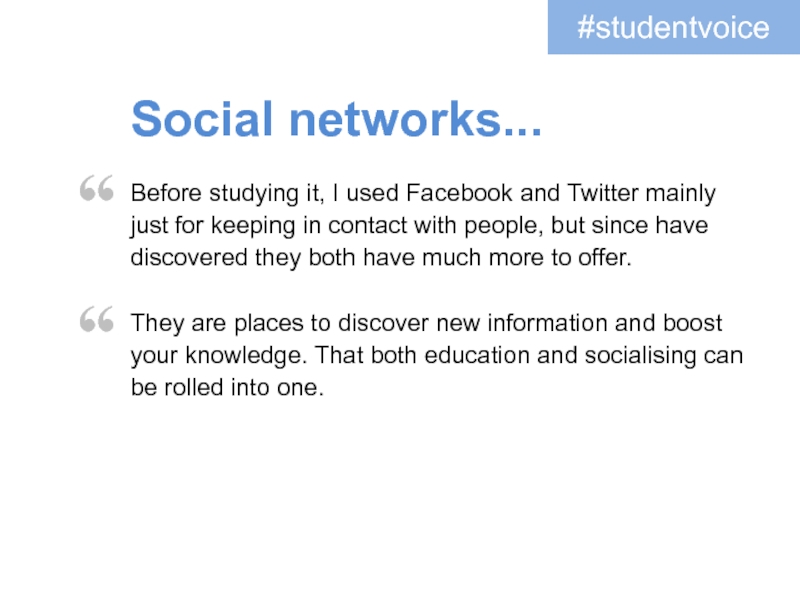
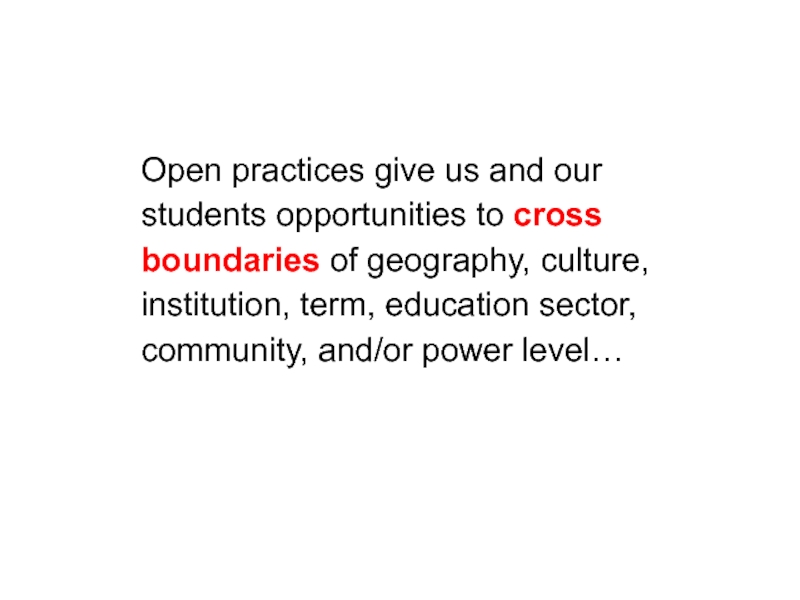
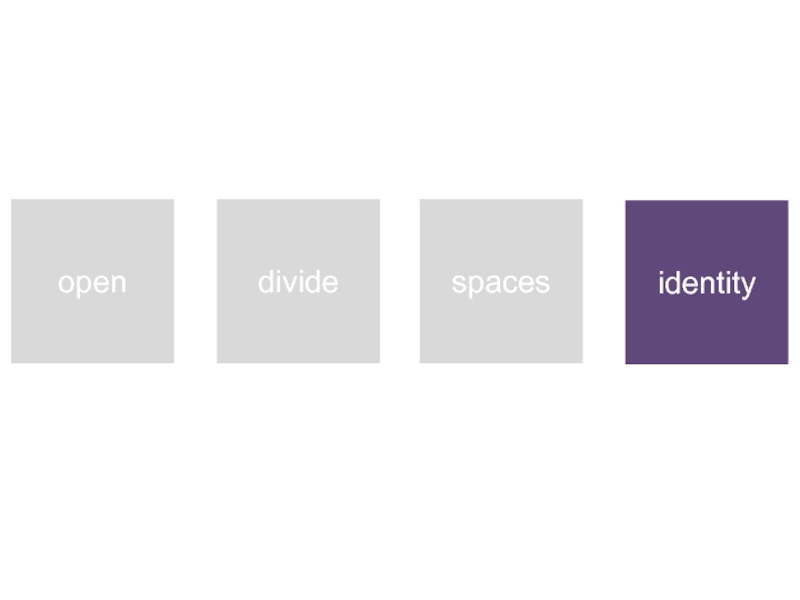
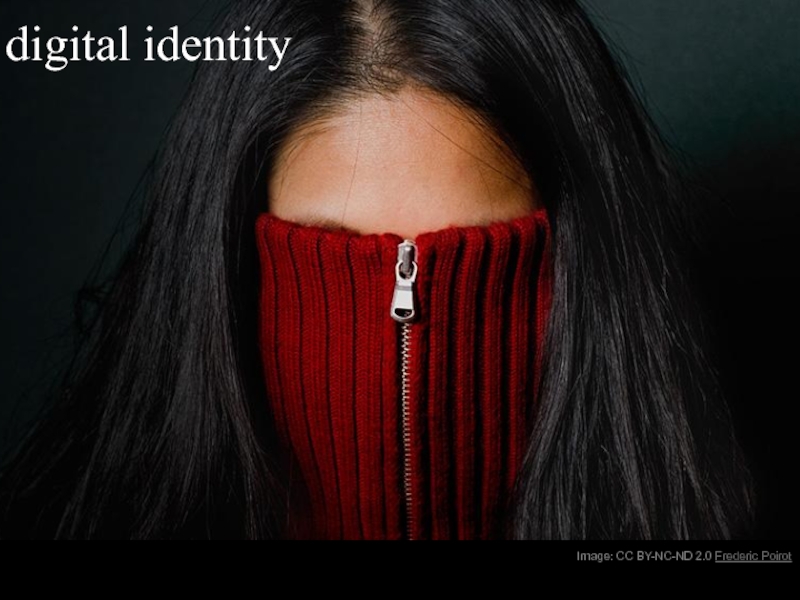
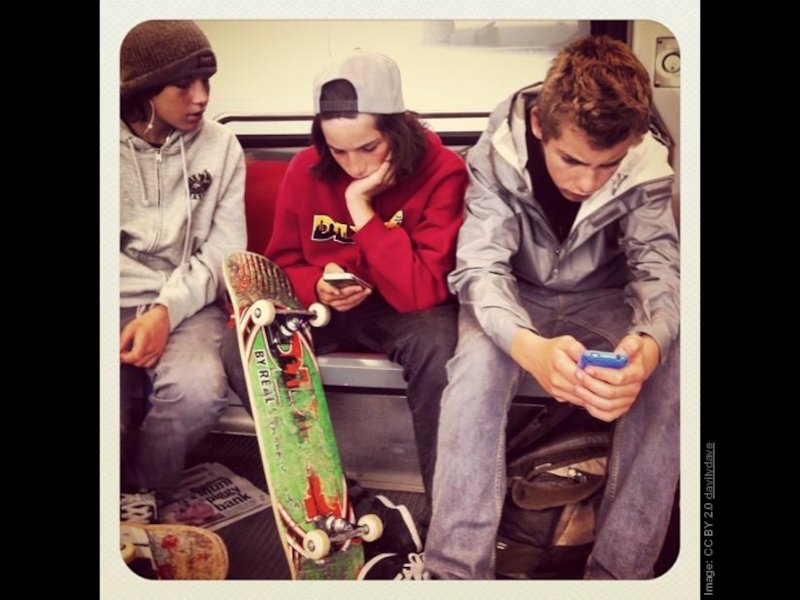

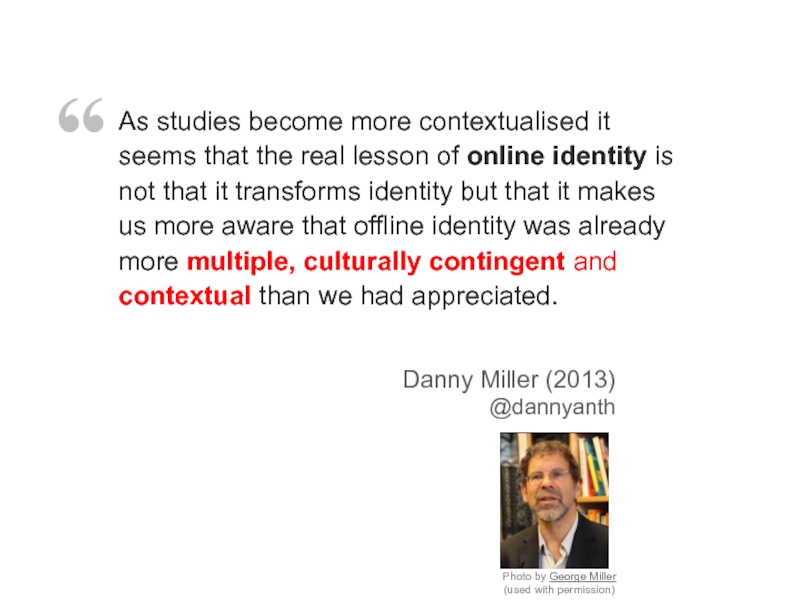
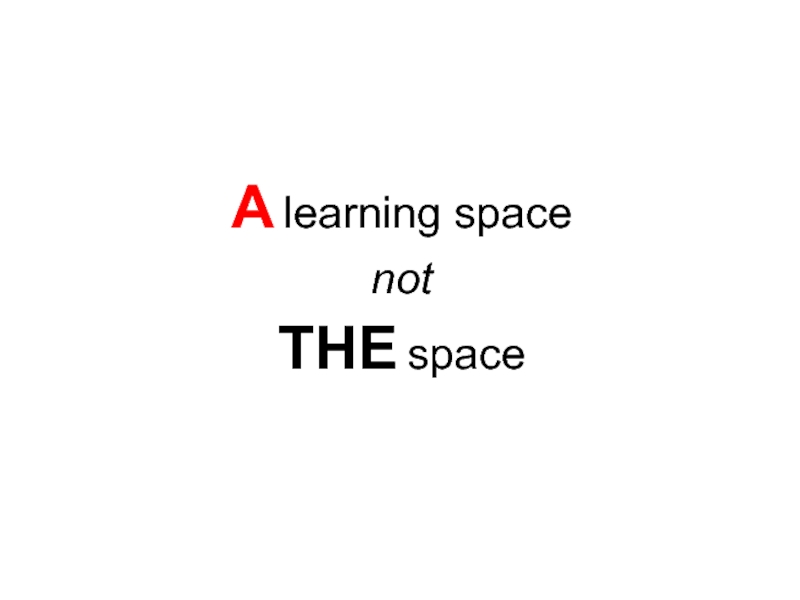
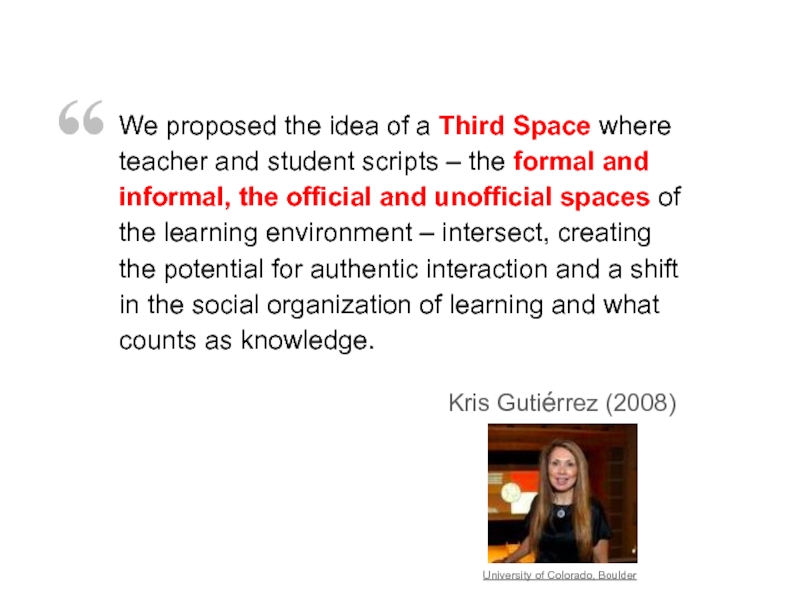
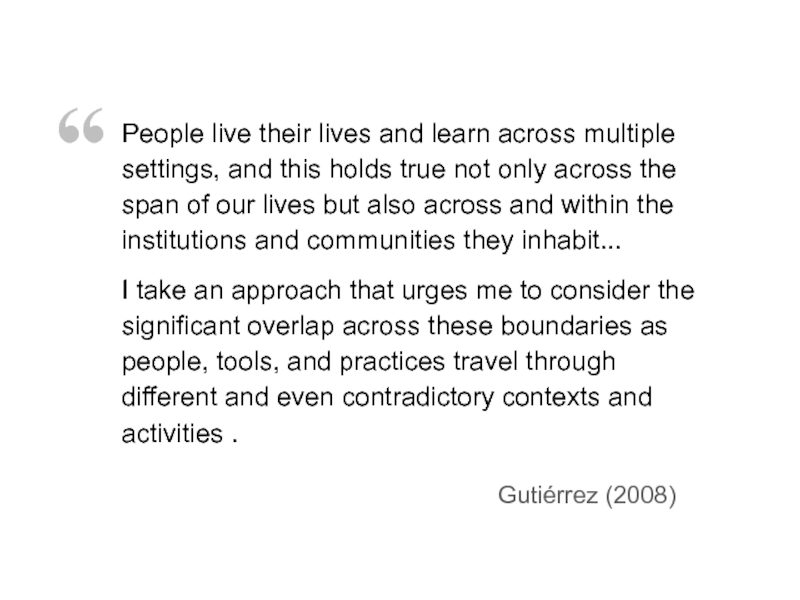
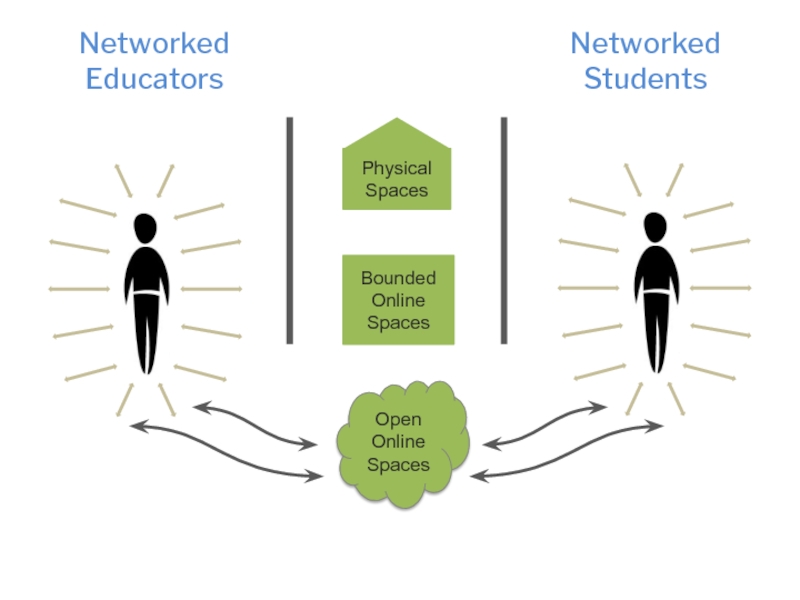
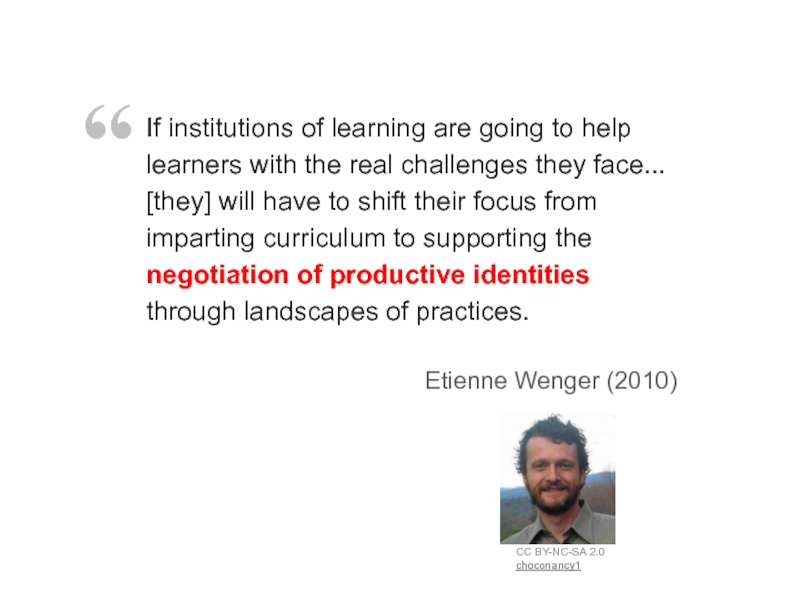


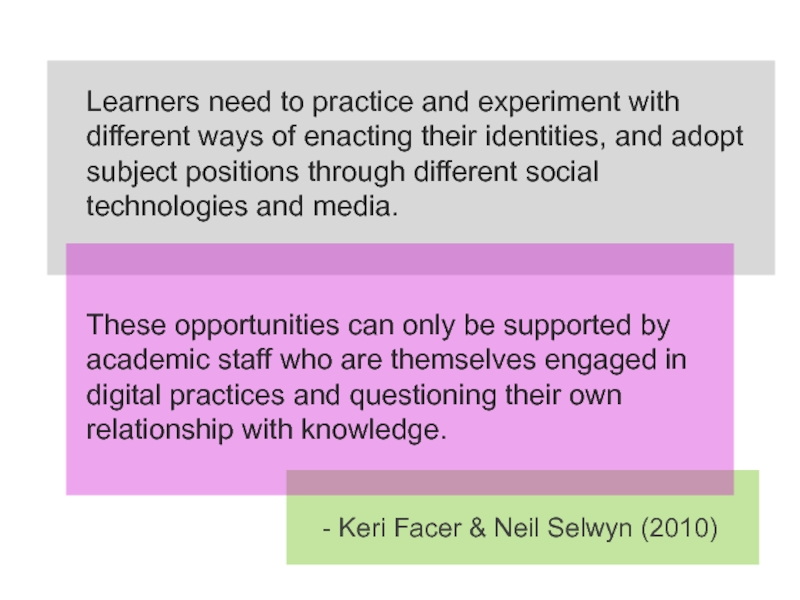
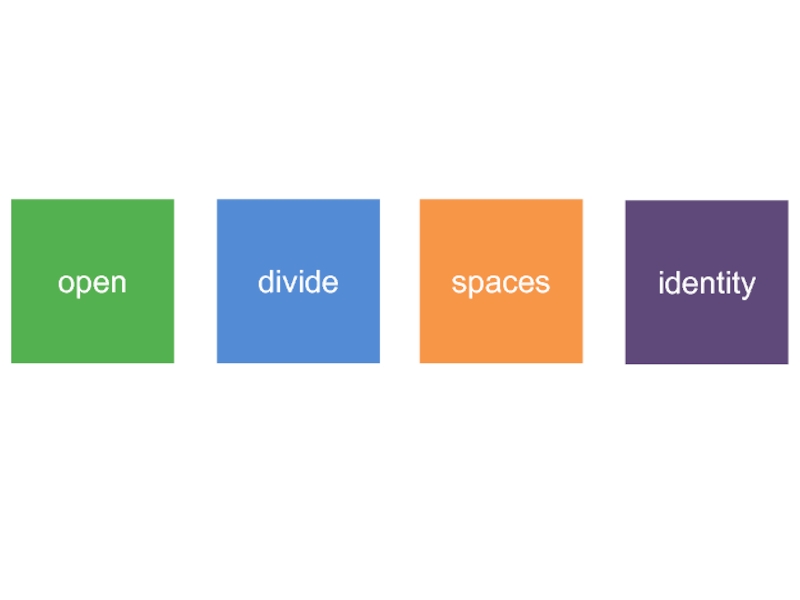
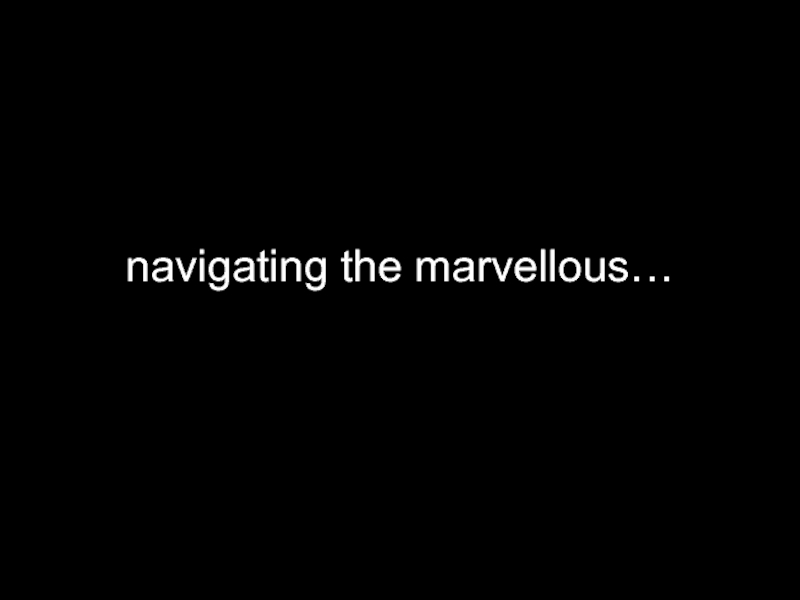
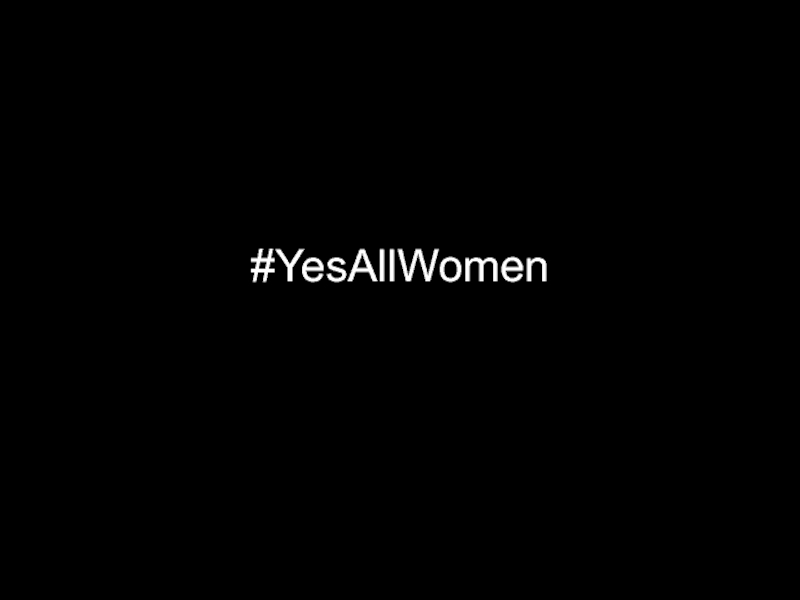
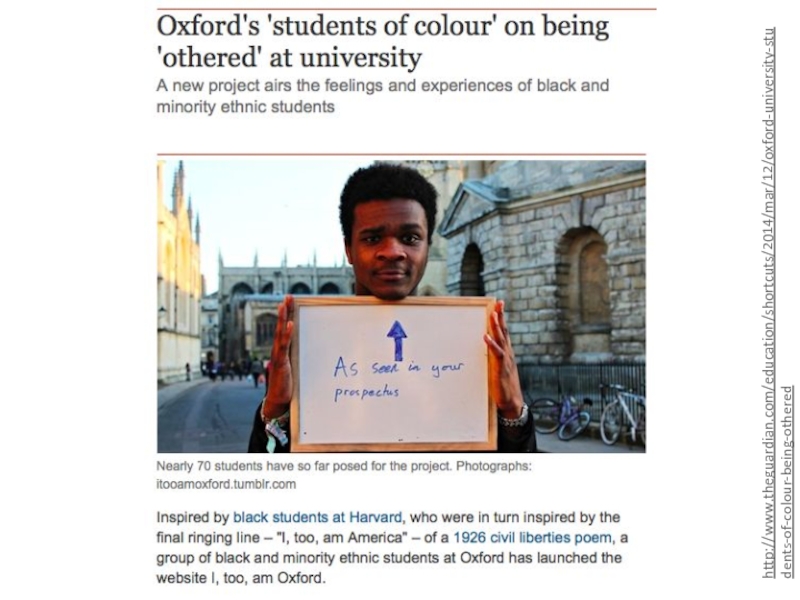
![Gardner Campbell – Ecologies of Yearning youtube.com/watch?v=kIzA4ItynYw Openness [is] process, not product after all. It’s](/img/tmb/1/43436/4ff8ccd019d912a44715b67208e70115-800x.jpg)
